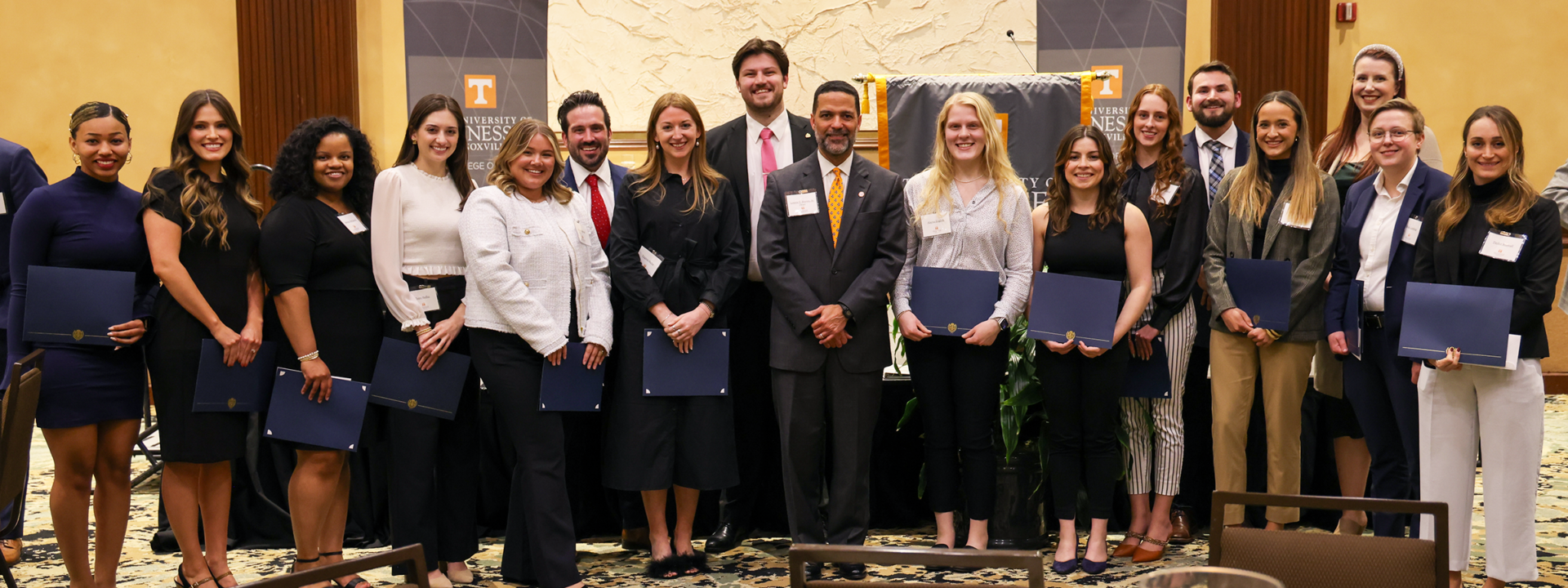Access and Engagement
at Winston Law

The Winston College of Law fully embraces the goals of the Statement of Aspirations approved by the University of Tennessee Board of Trustees. In solidarity with the Board and our campus, “[w]e are dedicated to expanding access to educational opportunities, striving to remove barriers, and making academic pursuits more affordable,” while remaining steadfast in our emphasis on “high academic standards, student achievement, and the preparation of responsible citizens.” As Tennessee’s flagship law school, Winston Law is committed to broadening access to law school and the legal profession, especially for Tennesseans.
Guided by these aspirations, we work to foster an inclusive learning and working environment in which future lawyers from all backgrounds, beliefs, and perspectives can thrive, as reinforced by our Nondiscrimination Policy.
Foremost, Winston Law welcomes differences and is a place where varied viewpoints are encouraged, thoughtfully considered, and respectfully challenged when appropriate. We are firmly committed to protecting against and responding to acts of bias, harassment, or discrimination, and to providing equal opportunities for all students, faculty, and staff.

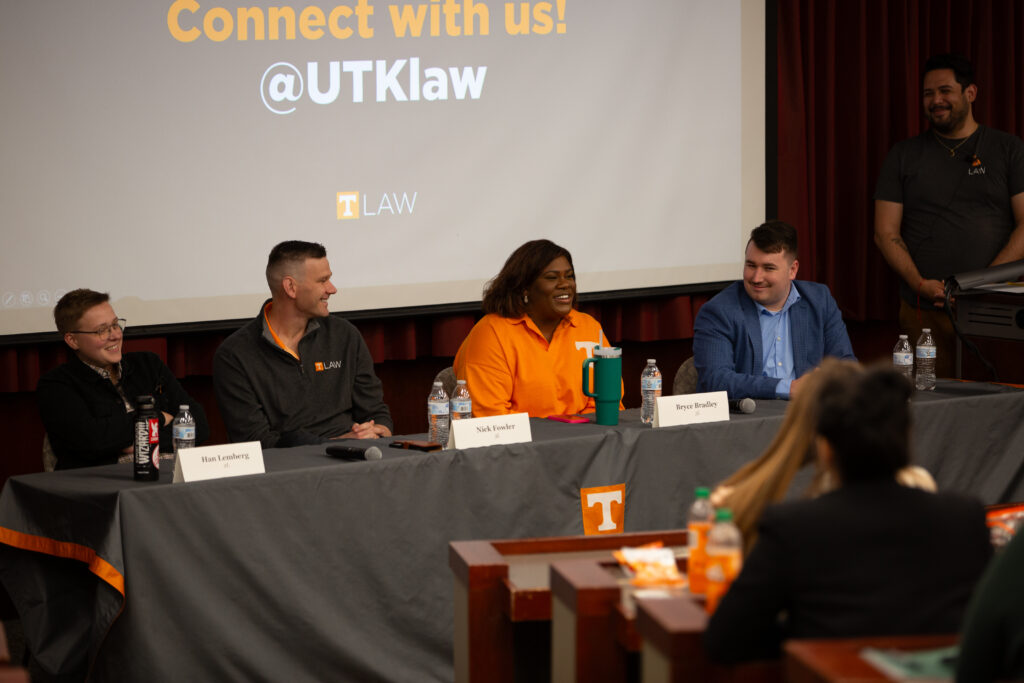
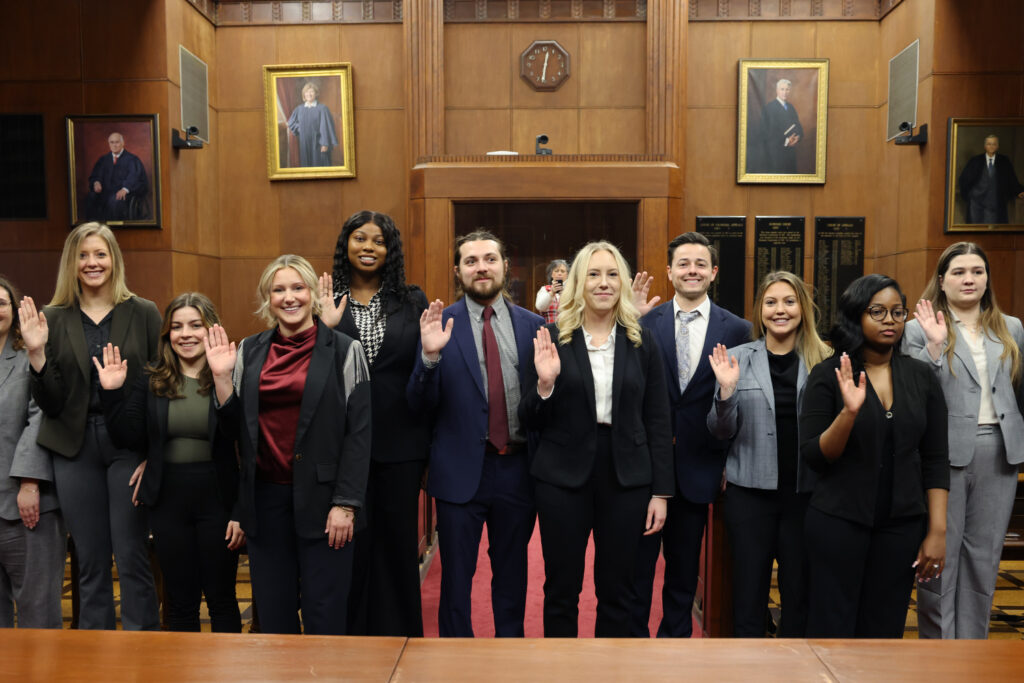
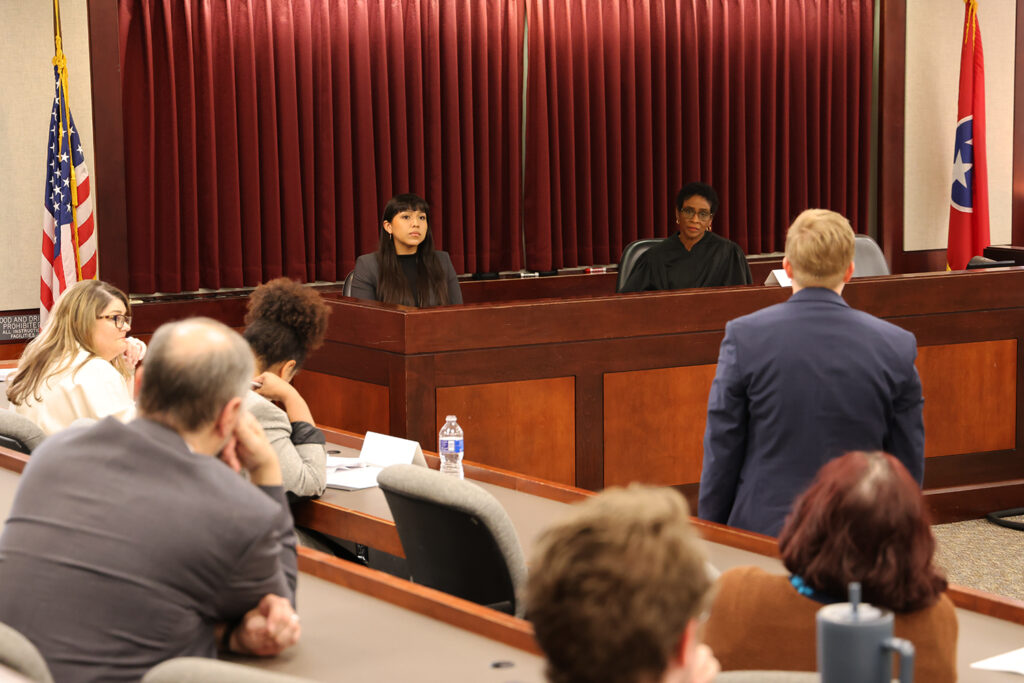
Community Engagement
Faculty, staff, and students at Winston Law are actively involved in community engagement efforts. As the law school for the state’s flagship institution, we are deeply committed to the land grant mission and to its call to support and collaborate with our community.
Pro Bono Programs
Students engage in pro bono work, providing free legal assistance to underserved communities.
TN Supreme Court recognizes students for pro bono service

Legal Clinic
Winston Law’s Legal Clinic works extensively with our neighboring communities to offer a variety of legal services.
Students in the Expungement Mini-Clinic provide critical legal assistance to underserved citizens in having criminal offenses expunged, thereby facilitating their ability to exercise important rights.
Students in the Transactional Law Legal Clinic interact with local, state and federal agencies on behalf of underrepresented clients to draft contracts and governance documents; conduct regulatory research and provide compliance advice; and provide legal presentations to the community.
UT Legal Clinic Honored for Extraordinary Community Service
Winston Law First-Gen Program
Winston Law is proud to celebrate our first-generation students—those who are in the first generation of their families to graduate from college. We welcome the determination and perspective first-gen students bring. Winston Law’s First-Generation Program creates a welcoming community and provides the support first-gen students need to succeed academically, professionally, and personally. Remarkably, more than 40 percent of our full-time faculty identify as first-gen. Their guidance, as well as that from first-gen alumni, is a wonderful resource for our first-gen students as they navigate law school and career paths. The student-led First-Gen Advisory Board helps shape programming and encourages peer support. First-gen students can also build connection through monthly brown bag lunches, mentoring partnerships, and the annual Fall Welcome Lunch and Spring Graduation & Cording
Ceremony.
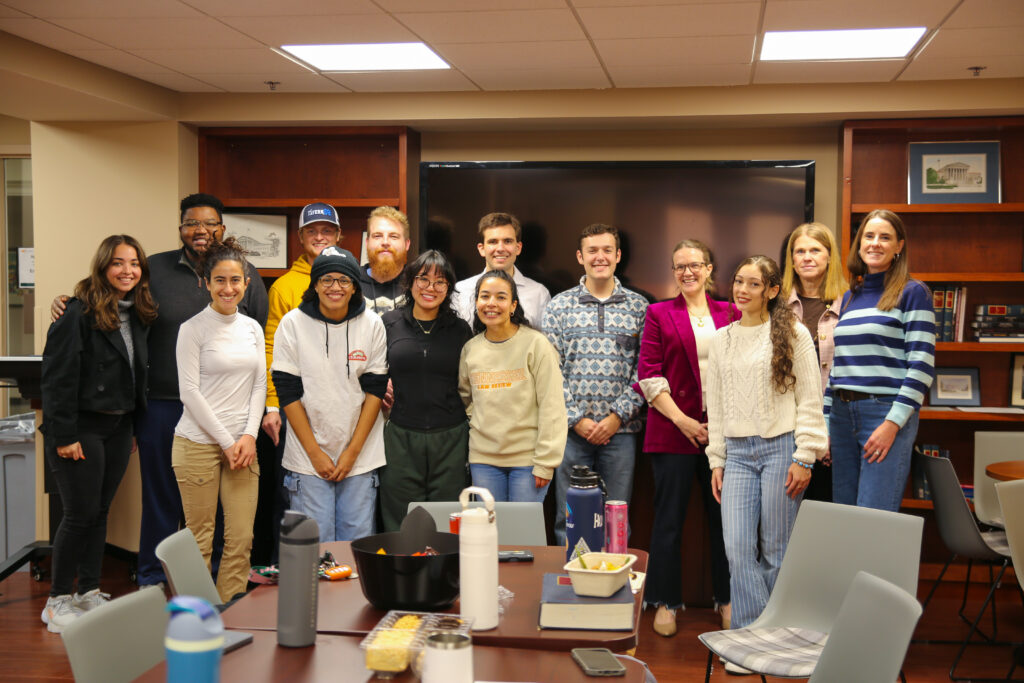
Research and Advocacy to Support Community Priorities
The law school’s faculty, staff, and students work with individuals across campus and with partners in the region to support communities throughout Tennessee and beyond.
Newly Launched Appalachian Justice Research Center Brings Solutions to Communities
Joy Radice Appointed Chair of the Tennessee Supreme Court Access to Justice Commission
Student Organizations and Engagement
Winston Law offers a wide range of opportunities through its programming and student organizations, enabling students to engage with the community, connect with practicing lawyers and potential employers, and build lasting relationships with peers with a variety of perspectives. These opportunities are reflected in numerous initiatives, a few of which are highlighted below.
Registered student organizations operate independently of the University of Tennessee, with some receiving guidance and support from university departments. The university encourages student organizations to promote civil and social awareness, but it does not endorse their activities or viewpoints. To view a full list of registered organizations, visit Volink.
Meet a few of our active student organizations
A chapter of the National Black Law Students Association, BLSA offers a dynamic range of programs and events throughout the academic year including panels on mentorship, networking sessions, and professional development workshops, and engaging speaker events. The group also co-hosts the annual Julian Blackshear, Jr. Scholarship Gala, benefitting the Julian Blackshear, Jr. Scholarship. BLSA features competitive Mock Trial and Moot Court teams for 2L and 3L students, with a special 1L Fellow observation program.
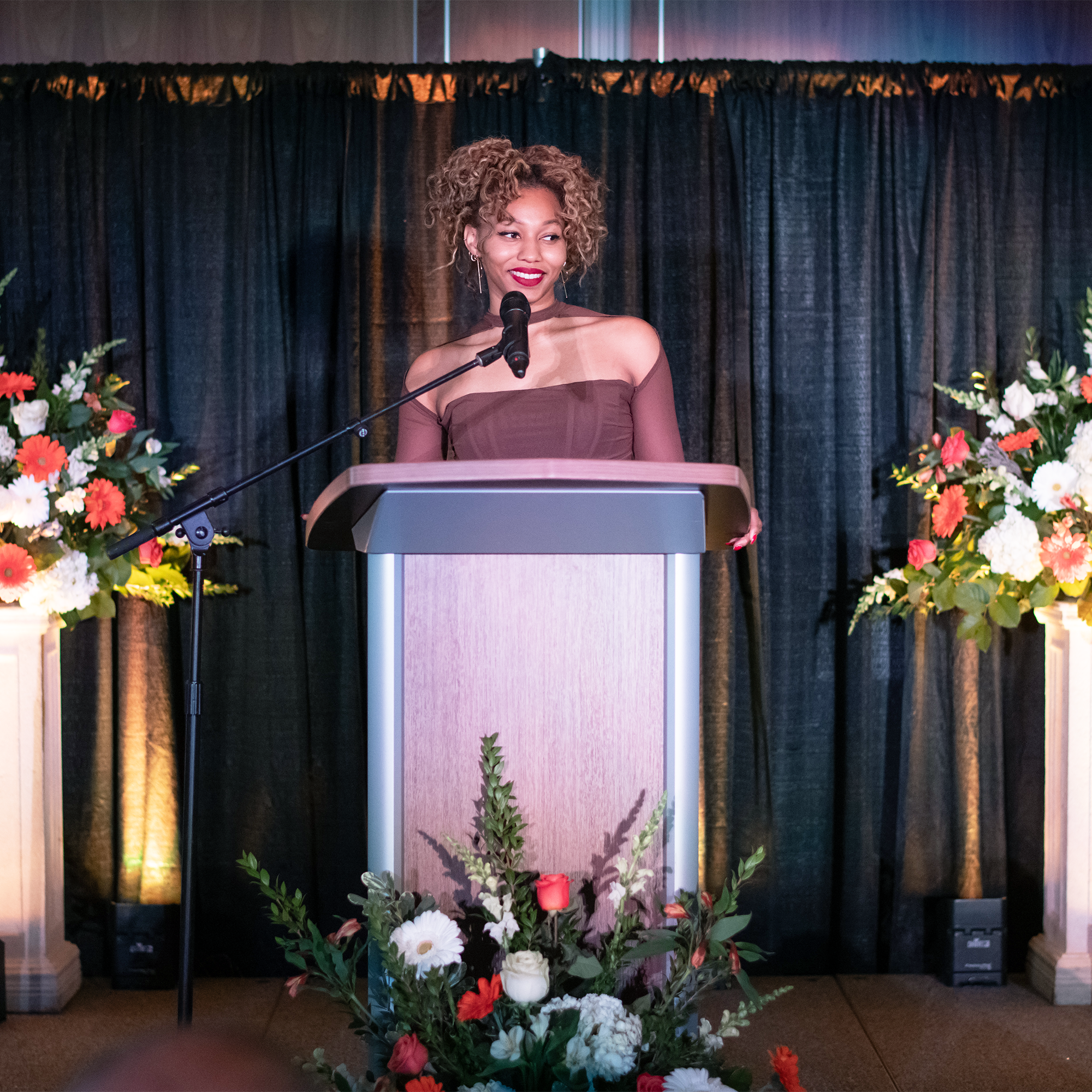
Vols for Veterans was founded by students committed to aiding veterans in the Knoxville community. The organization introduces law students to career opportunities in military service through JAG careers, assists veterans through pro bono work, and annually awards the General Clifton Cates Leadership Scholarship to two law student veterans or dependents of veterans. In 2024, past and current Vols for Vets members gathered in front of College of Law as 1L Dylan O’Brien was promoted to the rank of Captain in the U.S. Marine Corps in a ceremony conducted by Lt. Col. Chris Davis (’19), a founder of Vols for Vets.
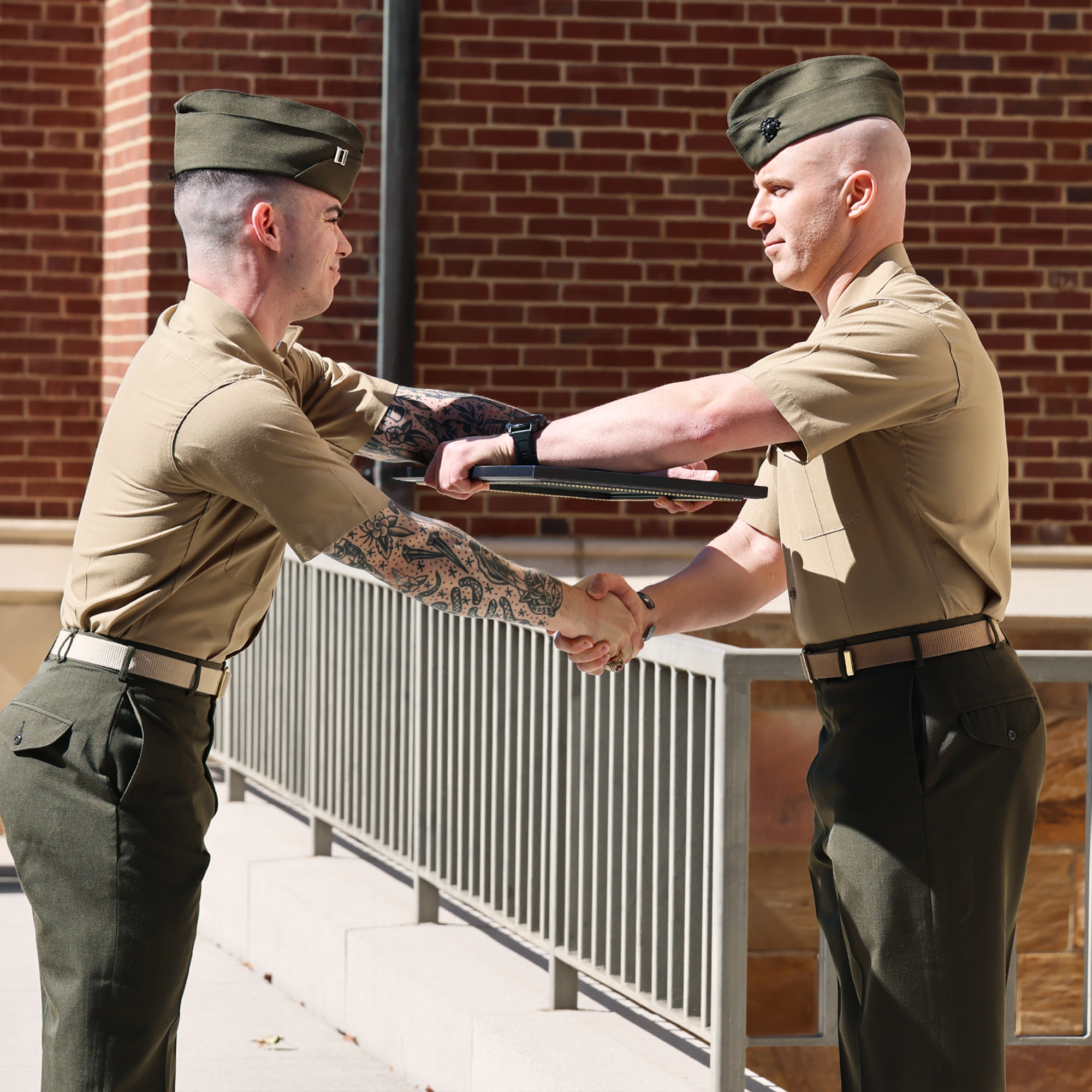
Law Women strives to raise awareness of issues related to women’s participation in the judicial system, promote career opportunities, act as a forum for networking with attorneys and other legal professionals, and coordinate activities within the university community. Among the groups’ many community building initiatives, is its annual chili cookoff, a tasty scholarship fundraiser.
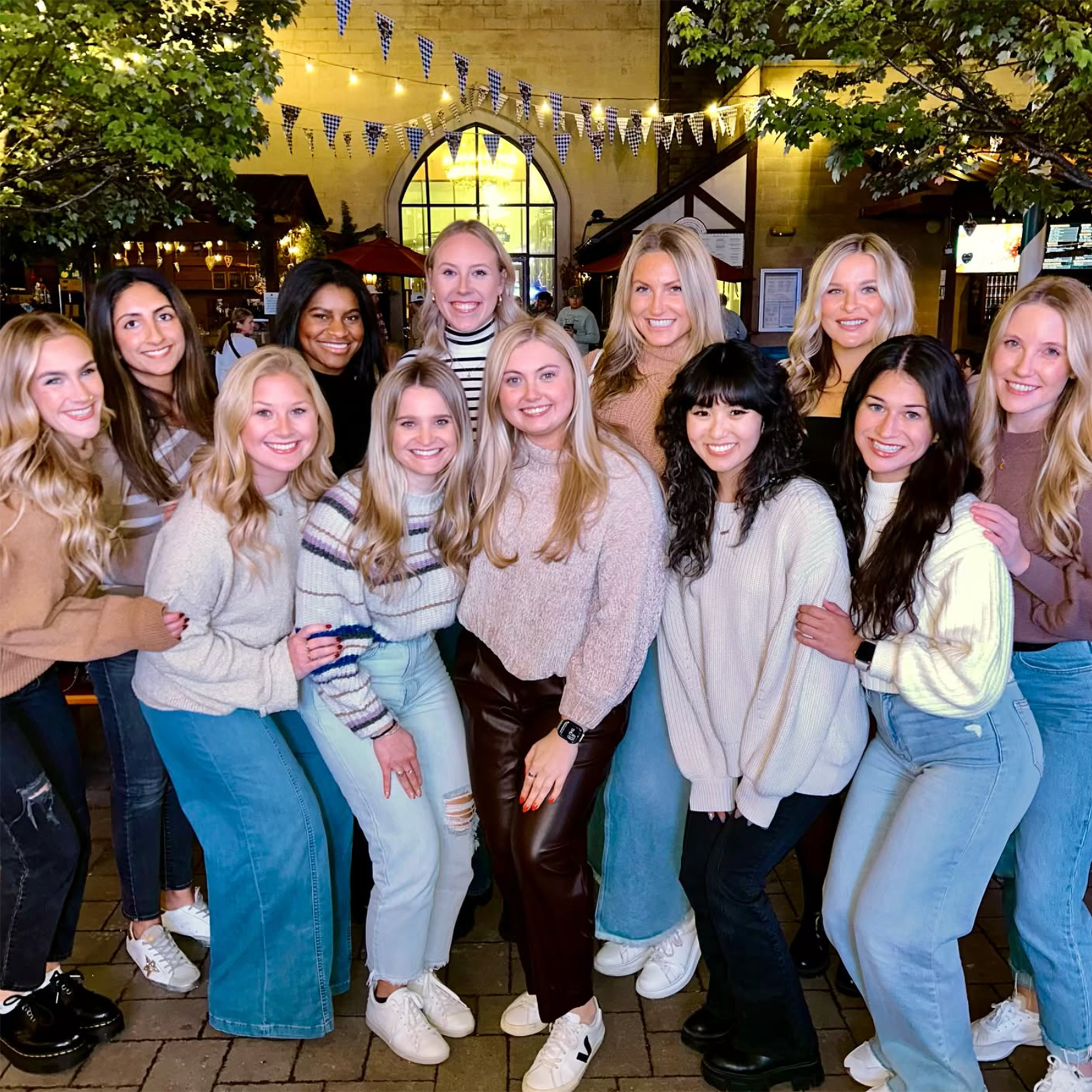
The Federalist Society is a non-partisan group of conservatives and libertarians interested in the current state of the law and legal system. The society’s principles are that “the state exists to preserve freedom, that the separation of governmental powers is central to our Constitution, and that it is emphatically the province and duty of the judiciary to say what the law is, not what it should be.” The society seeks to promote an awareness of these principles and to further their application through its activities. The group regularly hosts speaker events, bringing politicians and thought leaders in the legal profession to share their knowledge with the law community.
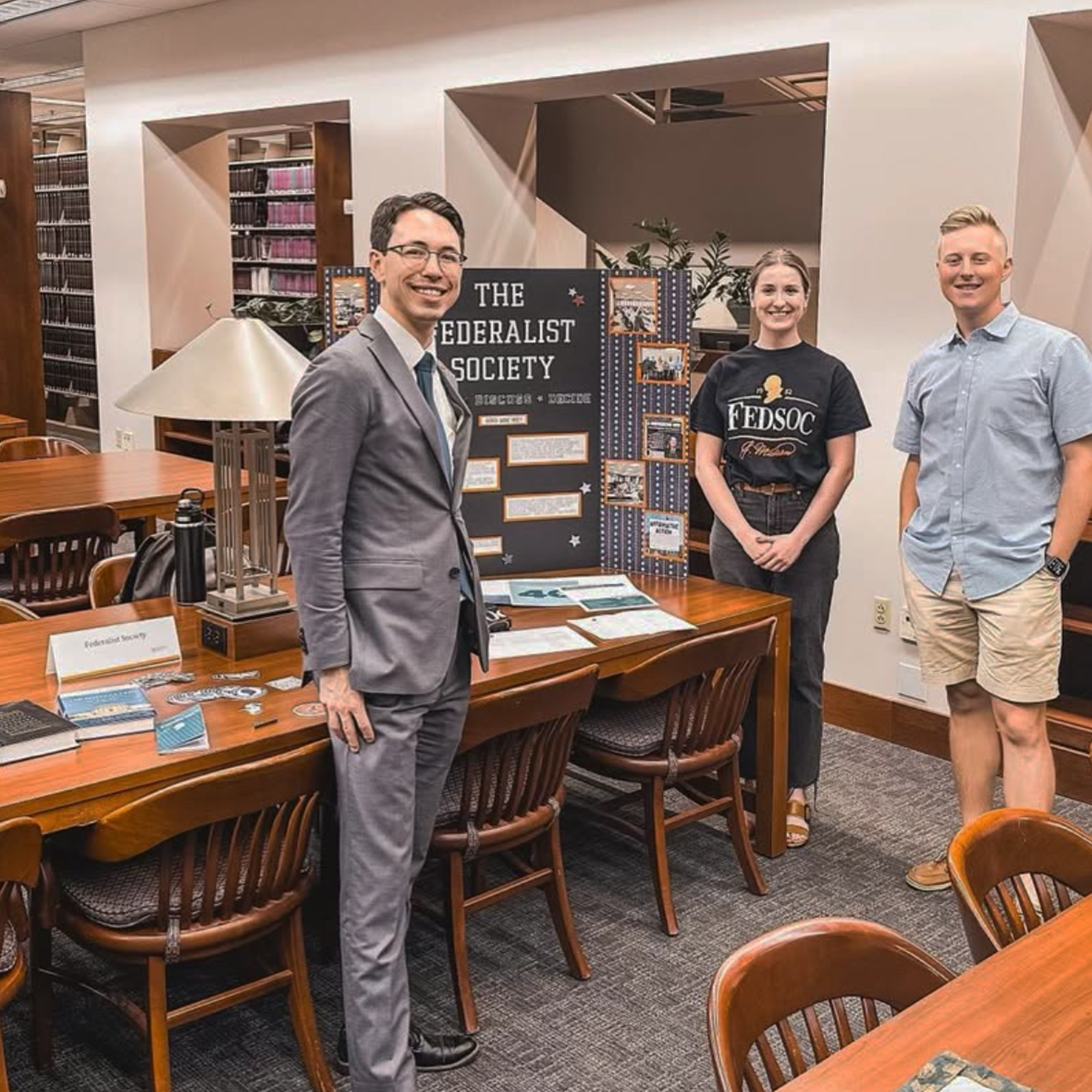
Learn more about all of the active Winston Law Student Organizations
The annual Julian Blackshear Jr. Scholarship Gala celebrates students, alumni and friends who have positively impacted the University of Tennessee College of Law through their commitment to diversity and inclusion.
The event is organized annually by the Dean’s Office in partnership with the Black Law Students Association (BLSA).
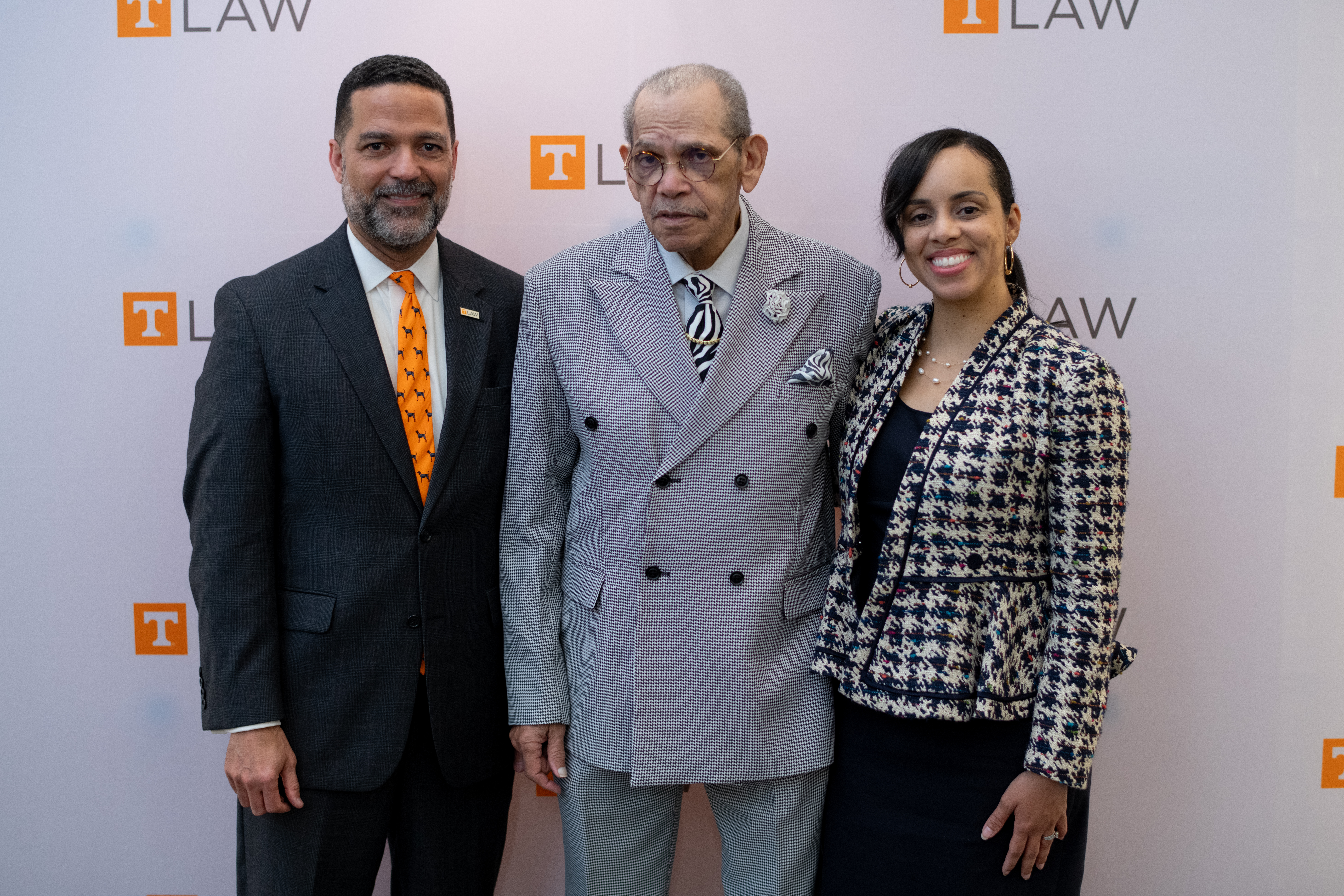
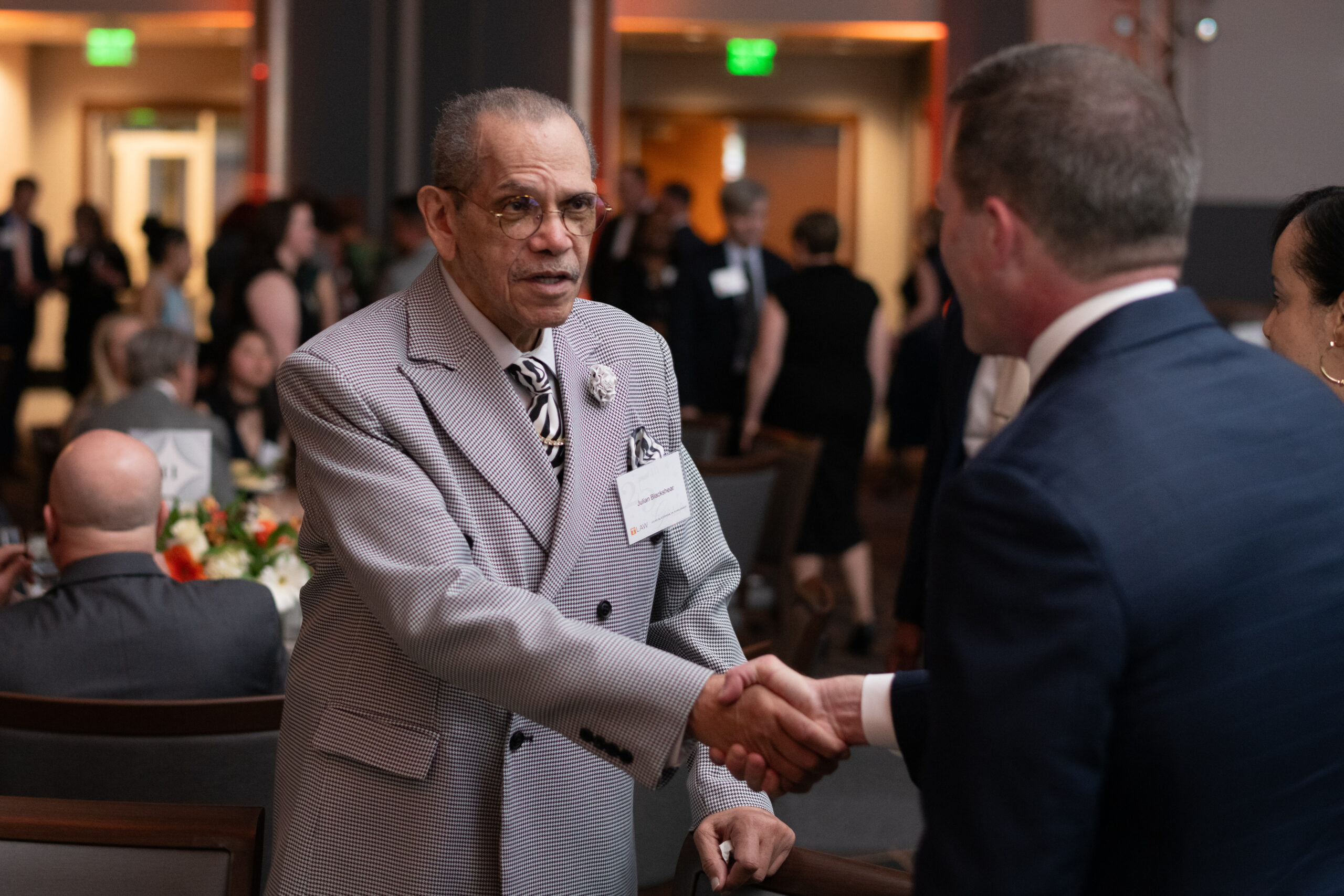
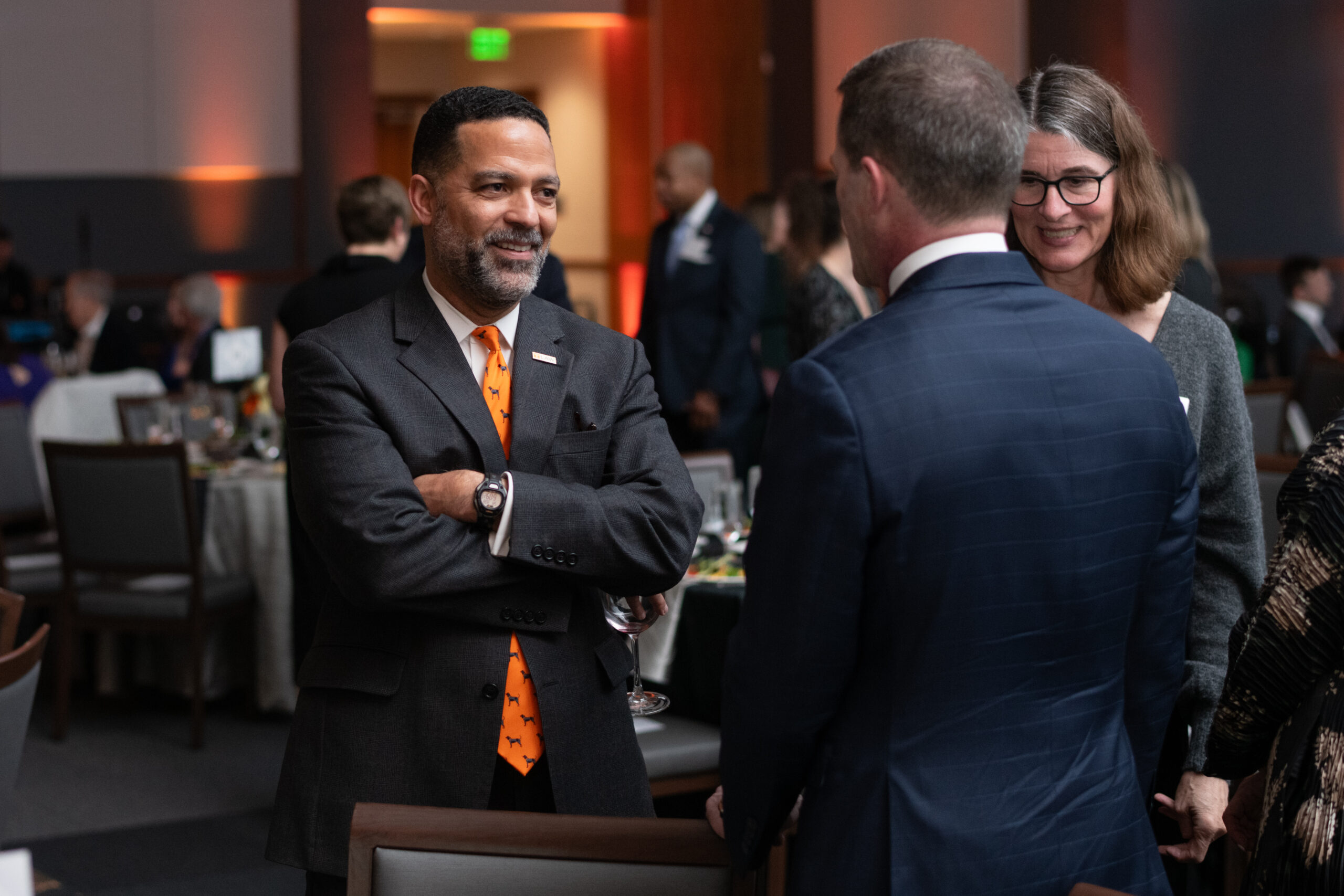
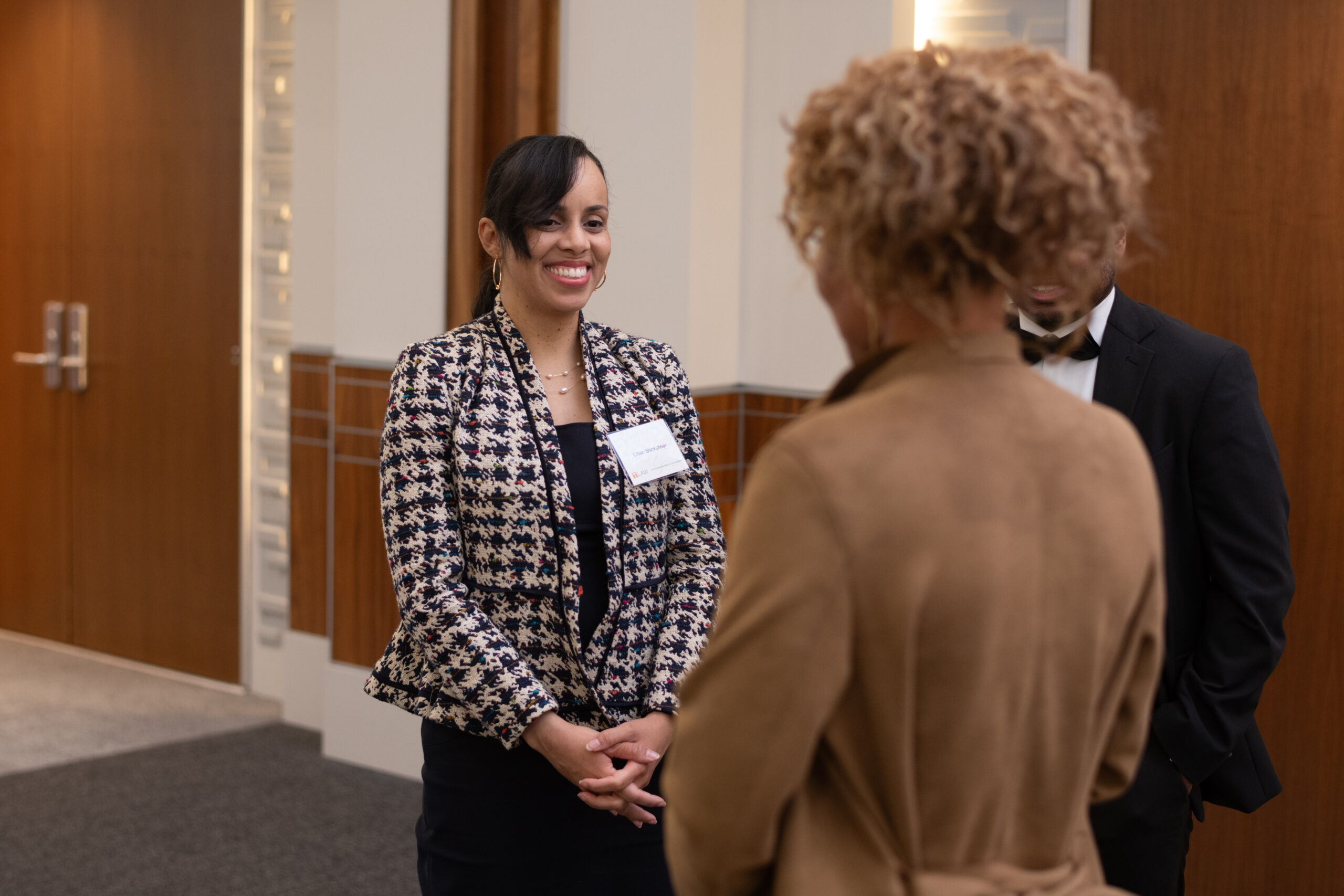
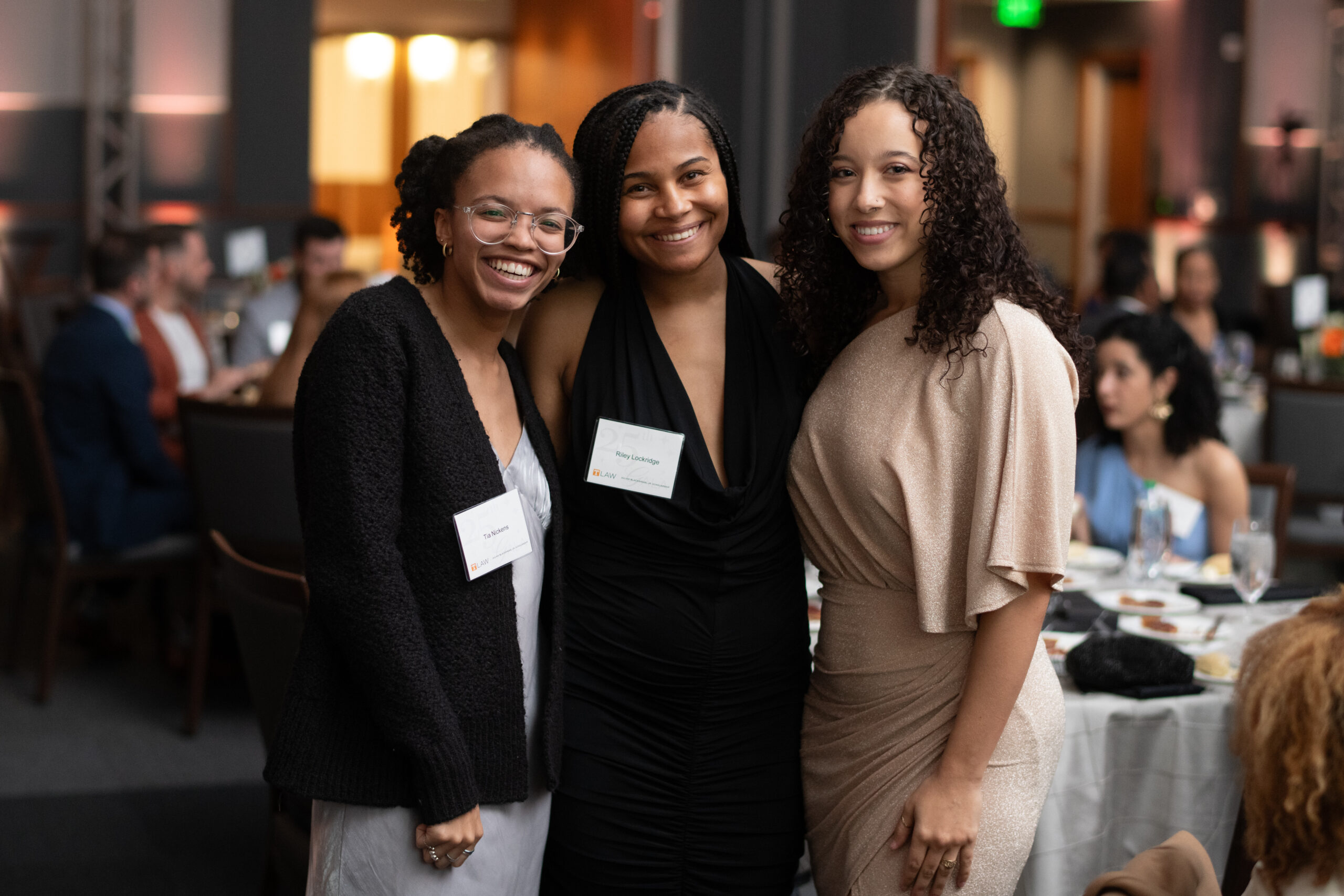
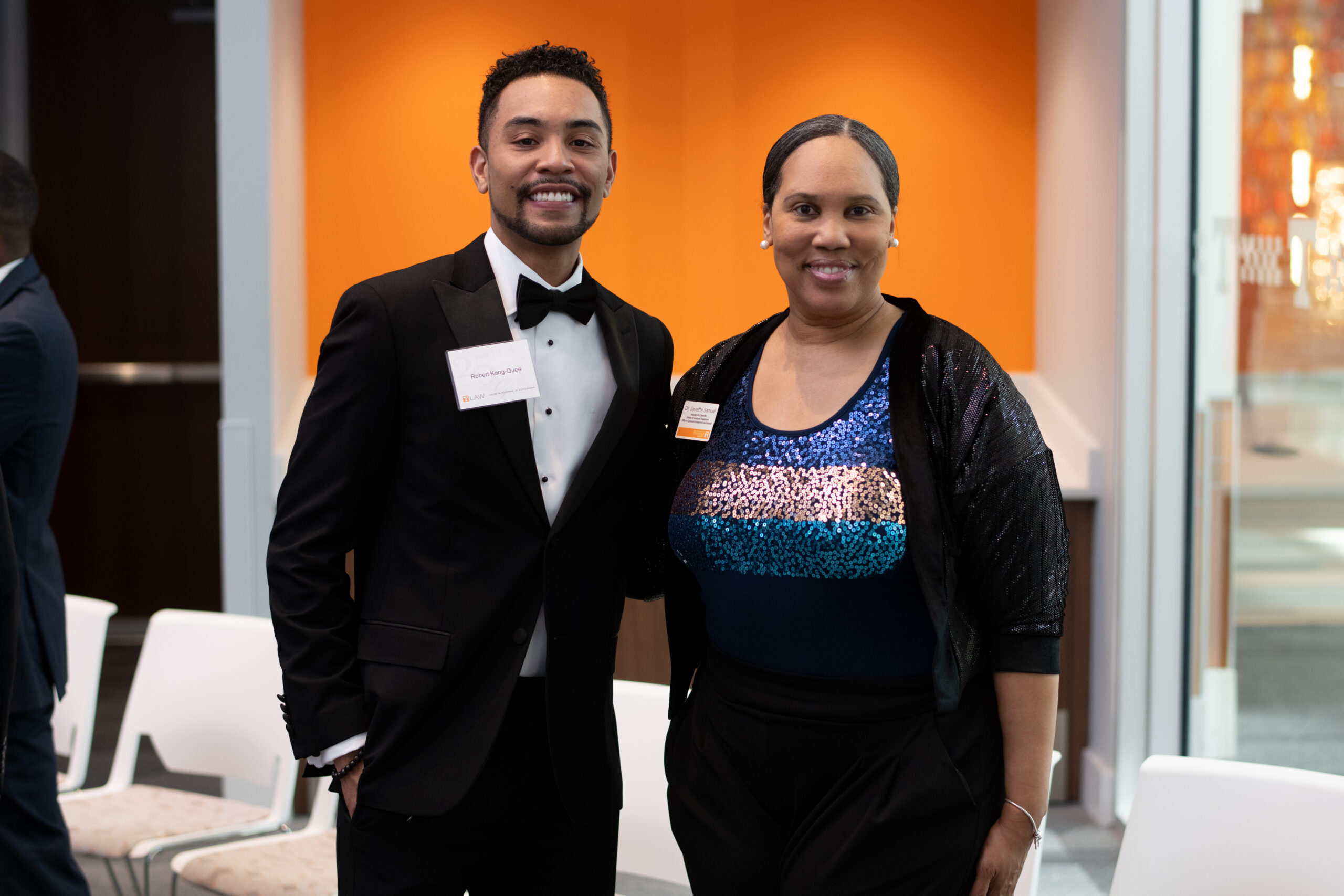


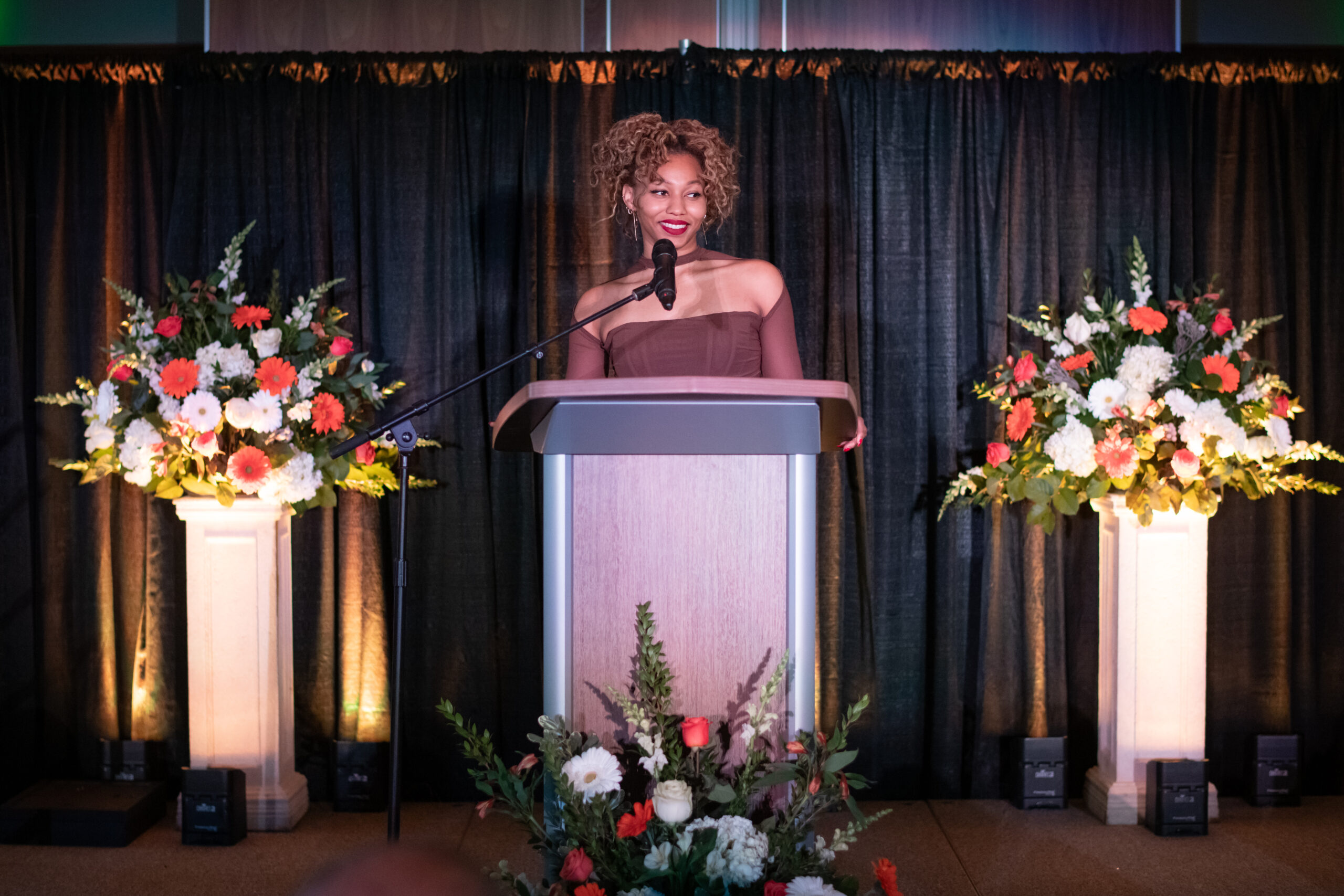
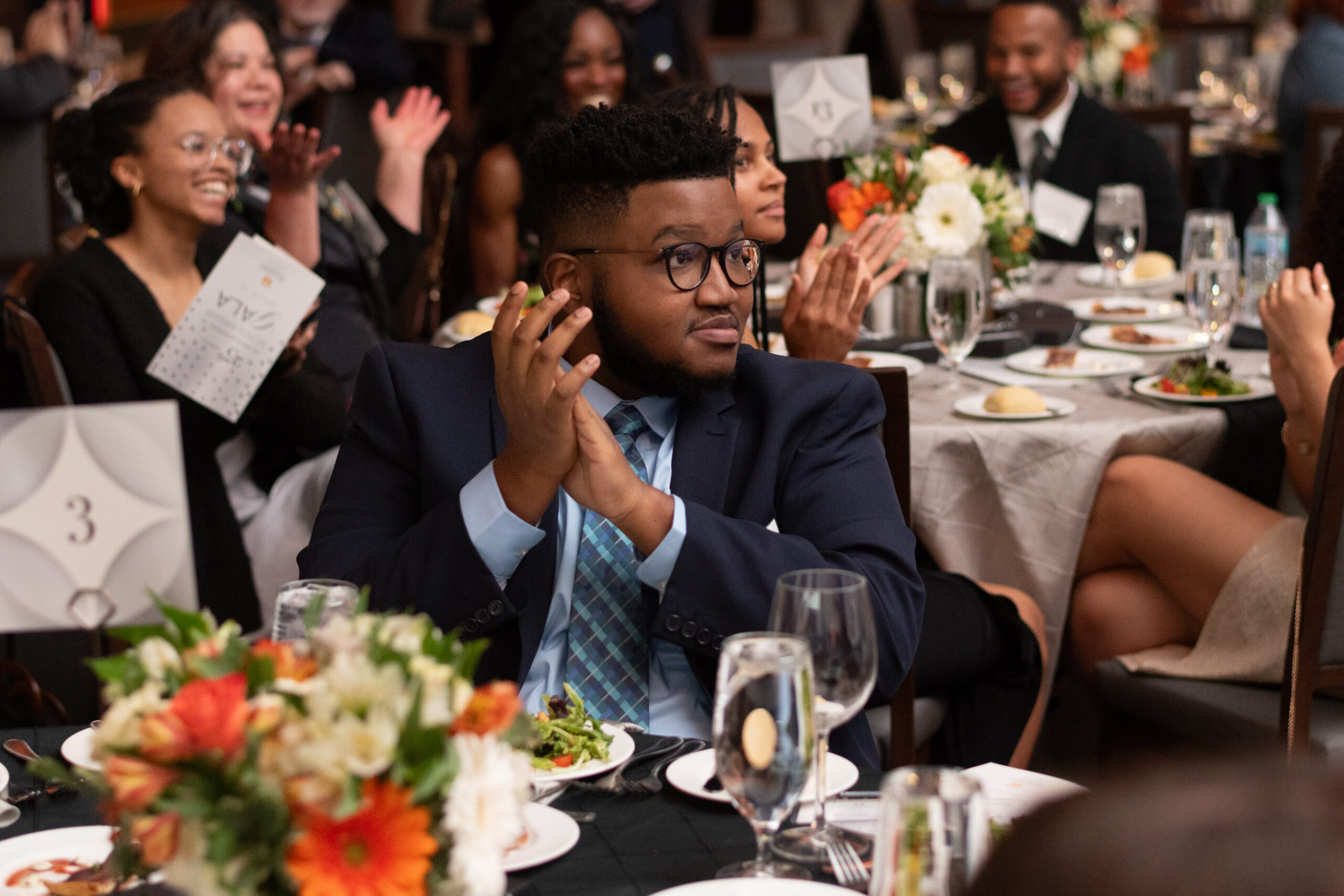
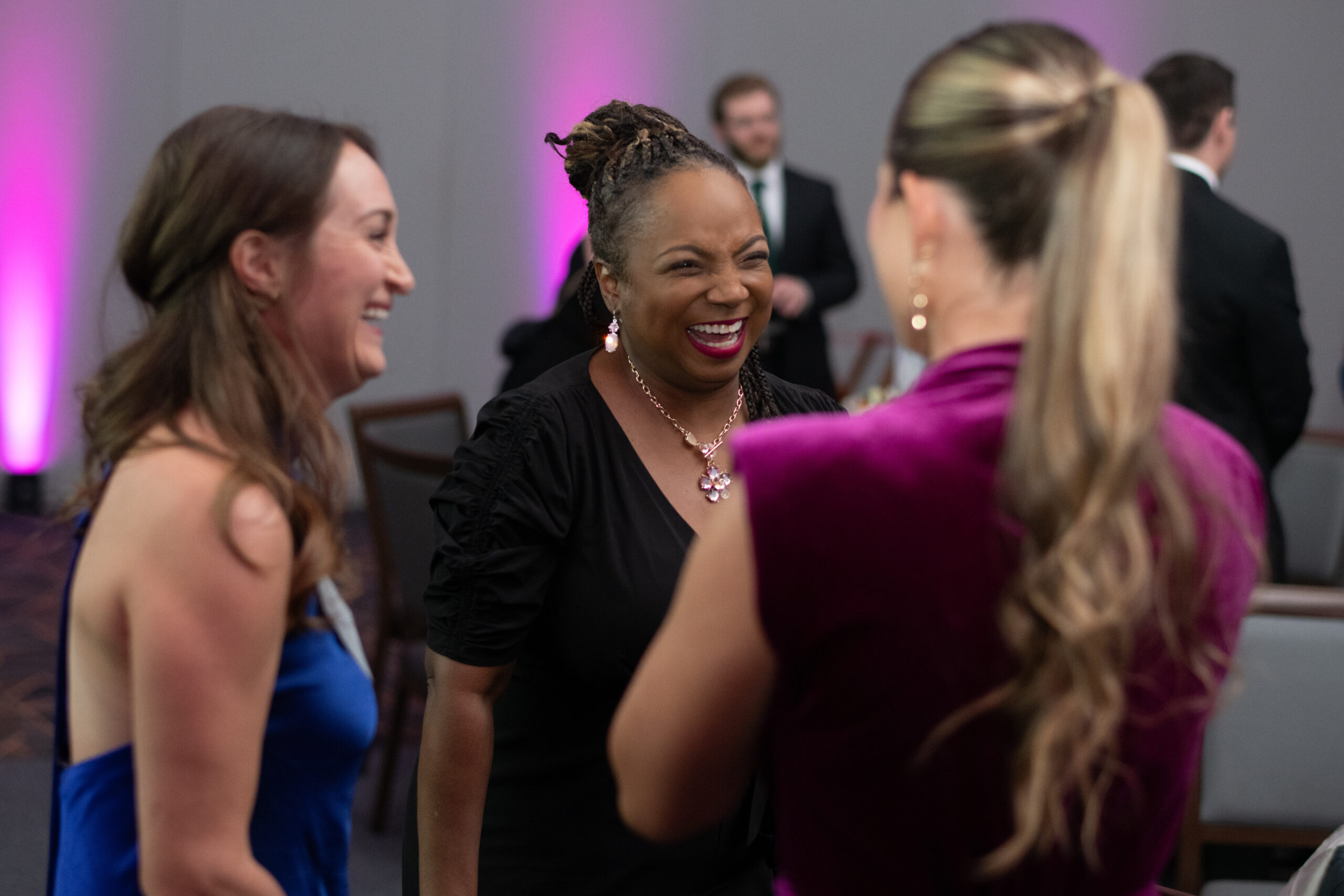
Hosted by the Black Law Students Association, Dr. Theotis Robinson visited Winston Law to share his trailblazing history as one of the first African American students admitted to UT.
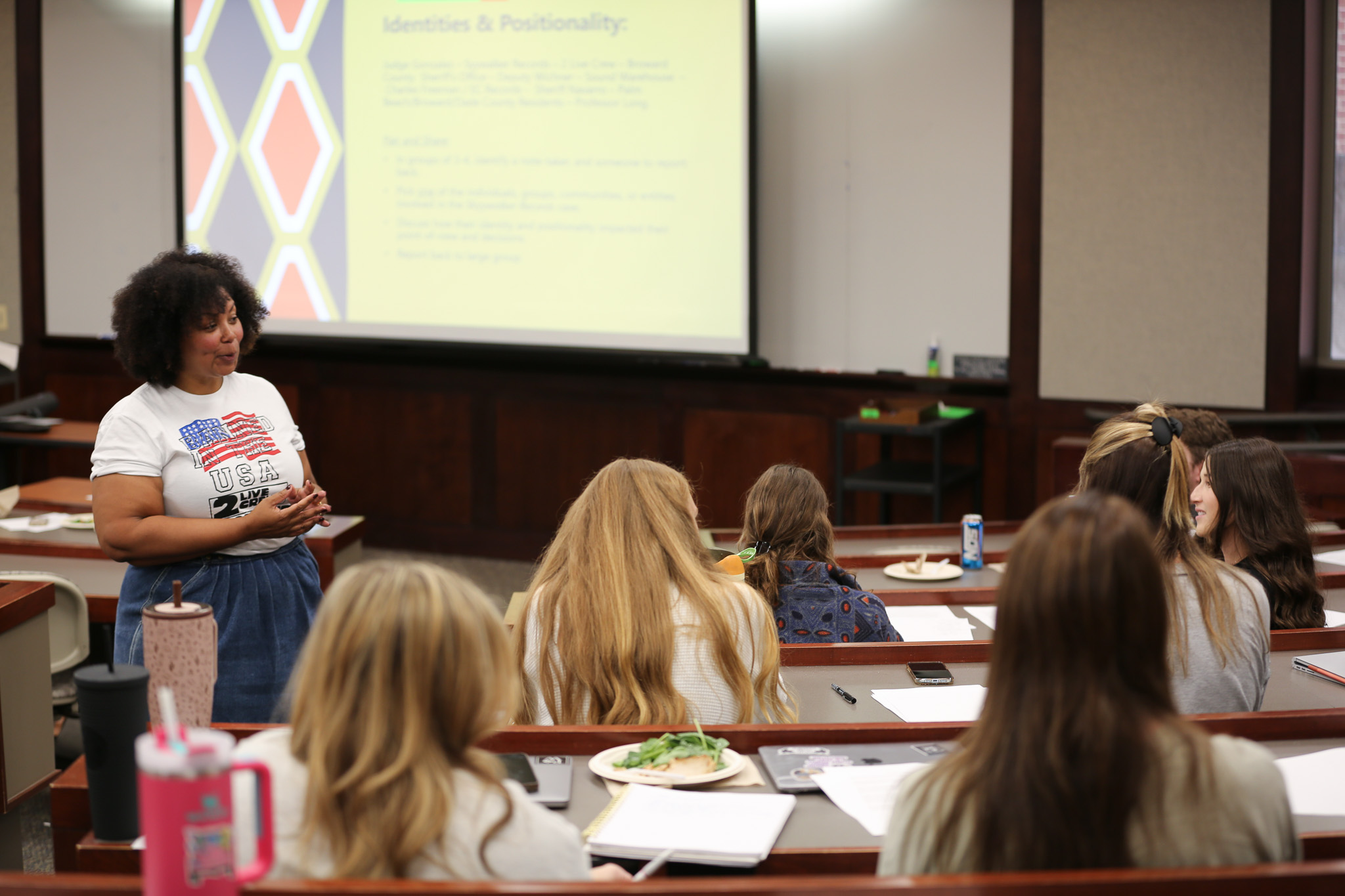
Curriculum
Winston Law’s curricular offerings reflect the law school’s value of building a more just society by promoting a learning environment that is robust, engaging, and inclusive.
Throughout the curriculum, faculty prepare their students to be responsible legal professionals by fostering dialogue that bridge cultural differences, encouraging civil discourse, and providing instruction on bias, cultural competency, and racism.
Electives: Students have the choice of numerous courses–such as Appalachian Justice Research Lab, Civil Rights Actions, Disability Law, and Sex, Gender, & Justice–that are designed to expose them to a variety of perspectives and legal issues.
Learn more about Winston Law’s courses here.
Faculty Scholarship
The faculty of Winston Law are engaged in a wide variety of research that crosses cultures and appeals to those with multiple interests. Their work spans a wide range of fields including human rights, civil rights, international law and criminal law. Some examples include:
- Sherley Cruz, Becky Jacobs, et. al., ABA Standard 303(c) and Divisive Concepts Legislation and Policies: Challenges and Opportunities, 73 Wash. U. J.L. & Pol’y 247 (2024)
- Joan MacLeod Heminway, Corporate Management Should All Be Feminists, 40 Law & Ineq. 409 (2022).
- Michael J. Higdon, LGBTQ Youth and the Promise of the Kennedy Quartet, 43 Cardozo L. Rev. 2385 (2022).
- Michelle Kwon, Tapping into the Talent Pipeline While Repairing the Leaky Pipe, 55 Toledo L. Rev. 219 (2024).
- Alex Long, What the Lawyer Well-Being Movement Could Learn from the Americans with Disabilities Act, 63 William & Mary L. Rev. Online 63 (2022).
- Briana Rosenbaum, Deflect, Delay, Deny: A Case Study of Segregation by Law School Faculty, 90 Tenn. L. Rev. 1 (2022).
Access and Engagement Leadership
Associate Dean for Access and Community Engagement
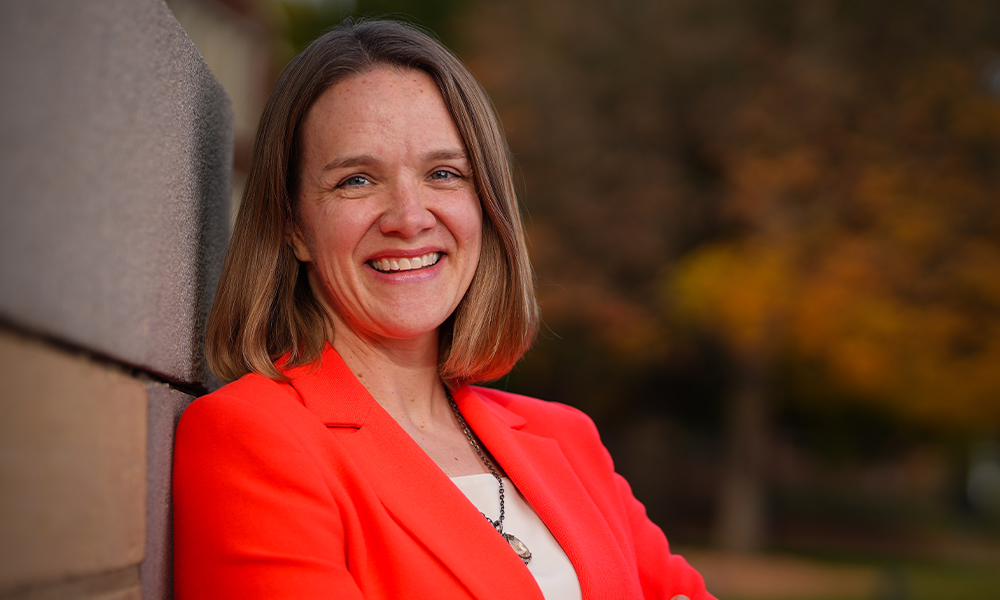
Briana Rosenbaum currently serves as the Associate Dean for Access and Community Engagement. Dean Rosenbaum’s most recent scholarship focuses on the history of race in American legal education.
Read more about Associate Dean Rosenbaum
Deflect, Delay, Deny: A Case Study of Segregation by Law School Faculty
Community and Inclusion Committee
The Community and Inclusion Committee supports faculty, staff, and students in scholarship, teaching, and service projects related to access, belonging, community, and cultural humility at Winston Law. The Committee—made up of faculty, staff, and students—plans programming and recommends policies and strategies for increasing access to legal education, engaging with the community, and enhancing the welcoming and inclusive atmosphere of Winston Law.
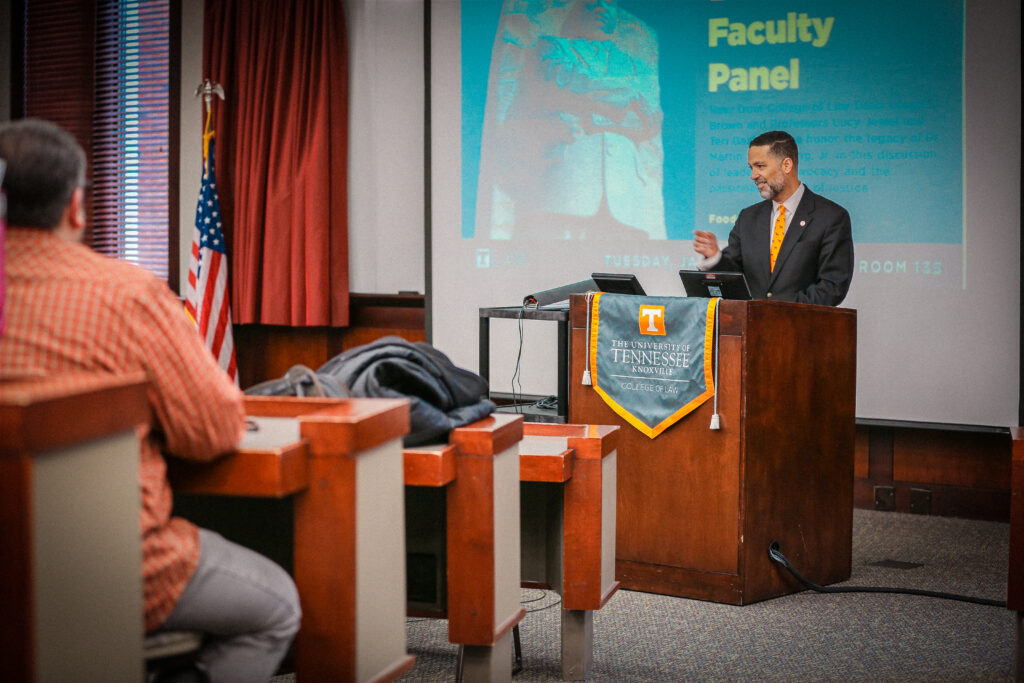
Access and Engagement
at Winston Law

The Winston College of Law fully embraces the goals of the Statement of Aspirations approved by the University of Tennessee Board of Trustees. In solidarity with the Board and our campus, “[w]e are dedicated to expanding access to educational opportunities, striving to remove barriers, and making academic pursuits more affordable,” while remaining steadfast in our emphasis on “high academic standards, student achievement, and the preparation of responsible citizens.” As Tennessee’s flagship law school, Winston Law is committed to broadening access to law school and the legal profession, especially for Tennesseans.
Guided by these aspirations, we work to foster an inclusive learning and working environment in which future lawyers from all backgrounds, beliefs, and perspectives can thrive, as reinforced by our Nondiscrimination Policy.
Foremost, Winston Law welcomes differences and is a place where varied viewpoints are encouraged, thoughtfully considered, and respectfully challenged when appropriate. We are firmly committed to protecting against and responding to acts of bias, harassment, or discrimination, and to providing equal opportunities for all students, faculty, and staff.

Community Engagement
Faculty, staff, and students at Winston Law are actively involved in community engagement efforts. As the law school for the state’s flagship institution, we are deeply committed to the land grant mission and to its call to support and collaborate with our community.
Pro Bono Programs
Students engage in pro bono work, providing free legal assistance to underserved communities.
TN Supreme Court recognizes students for pro bono service
Legal Clinic
Winston Law’s Legal Clinic works extensively with our neighboring communities to offer a variety of legal services.
Students in the Expungement Mini-Clinic provide critical legal assistance to underserved citizens in having criminal offenses expunged, thereby facilitating their ability to exercise important rights.
Students in the Transactional Law Legal Clinic interact with local, state and federal agencies on behalf of underrepresented clients to draft contracts and governance documents; conduct regulatory research and provide compliance advice; and give legal presentations to the community.
UT Legal Clinic Honored for Extraordinary Community Service
Winston Law First-Gen Program
Winston Law is proud to celebrate our first-generation students—those who are in the
first generation of their families to graduate from college. We welcome the determination
and perspective first-gen students bring. Winston Law’s First-Generation Program
creates a welcoming community and provides the support first-gen students need to
succeed academically, professionally, and personally.
Remarkably, more than 40 percent of our full-time faculty identify as first-gen. Their
guidance, as well as that from first-gen alumni, is a wonderful resource for our first-gen
students as they navigate law school and career paths. The student-led First-Gen
Advisory Board helps shape programming and encourages peer support. First-gen
students can also build connection through monthly brown bag lunches, mentoring
partnerships, and the annual Fall Welcome Lunch and Spring Graduation & Cording
Ceremony.

Research and Advocacy to Support Community Priorities
The law school’s faculty, staff, and students work with individuals across campus and with partners in the region to support communities throughout Tennessee and beyond.
Student Organizations and Engagement
Winston Law offers a wide range of opportunities through its programming and student organizations, enabling students to engage with the community, connect with practicing lawyers and potential employers, and build lasting relationships with peers with a variety of perspectives. These opportunities are reflected in numerous initiatives, a few of which are highlighted below.
Registered student organizations operate independently of the University of Tennessee, with some receiving guidance and support from university departments. The university encourages student organizations to promote civil and social awareness, but it does not endorse their activities or viewpoints. To view a full list of registered organizations, visit Volink.
Meet a few of our active student organizations
A chapter of the National Black Law Students Association, BLSA offers a dynamic range of programs and events throughout the academic year including panels on mentorship, networking sessions, and professional development workshops, and engaging speaker events. The group also co-hosts the annual Julian Blackshear, Jr. Scholarship Gala, benefitting the Julian Blackshear, Jr. Scholarship. BLSA features competitive Mock Trial and Moot Court teams for 2L and 3L students, with a special 1L Fellow observation program.

Vols for Veterans was founded by students committed to aiding veterans in the Knoxville community. The organization introduces law students to career opportunities in military service through JAG careers, assists veterans through pro bono work, and annually awards the General Clifton Cates Leadership Scholarship to two law student veterans or dependents of veterans. In 2024, past and current Vols for Vets members gathered in front of College of Law as 1L Dylan O’Brien was promoted to the rank of Captain in the U.S. Marine Corps in a ceremony conducted by Lt. Col. Chris Davis (’19), a founder of Vols for Vets.

Law Women strives to raise awareness of issues related to women’s participation in the judicial system, promote career opportunities, act as a forum for networking with attorneys and other legal professionals, and coordinate activities within the university community. Among the groups’ many community building initiatives, is its annual chili cookoff, a tasty scholarship fundraiser.

The Federalist Society is a non-partisan group of conservatives and libertarians interested in the current state of the law and legal system. The society’s principles are that “the state exists to preserve freedom, that the separation of governmental powers is central to our Constitution, and that it is emphatically the province and duty of the judiciary to say what the law is, not what it should be.” The society seeks to promote an awareness of these principles and to further their application through its activities. The group regularly hosts speaker events, bringing politicians and thought leaders in the legal profession to share their knowledge with the law community.

Learn more about all of the active Winston Law Student Organizations
The annual Julian Blackshear Jr. Scholarship Gala celebrates students and alumni who have positively impacted the University of Tennessee College of Law through their commitment to diversity and inclusion.
The event is organized annually by the Dean’s Office in partnership with the Black Law Students Association (BLSA).
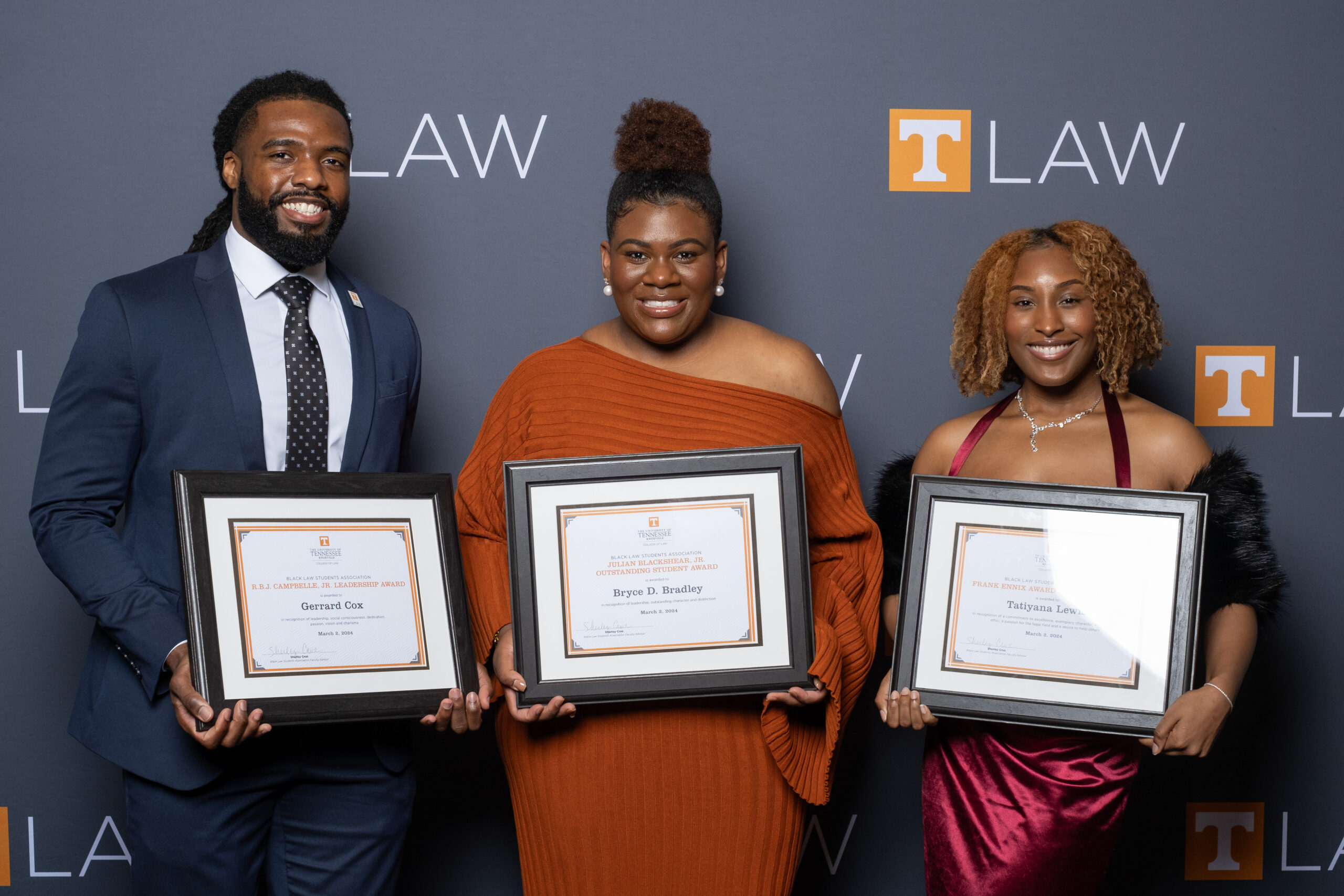
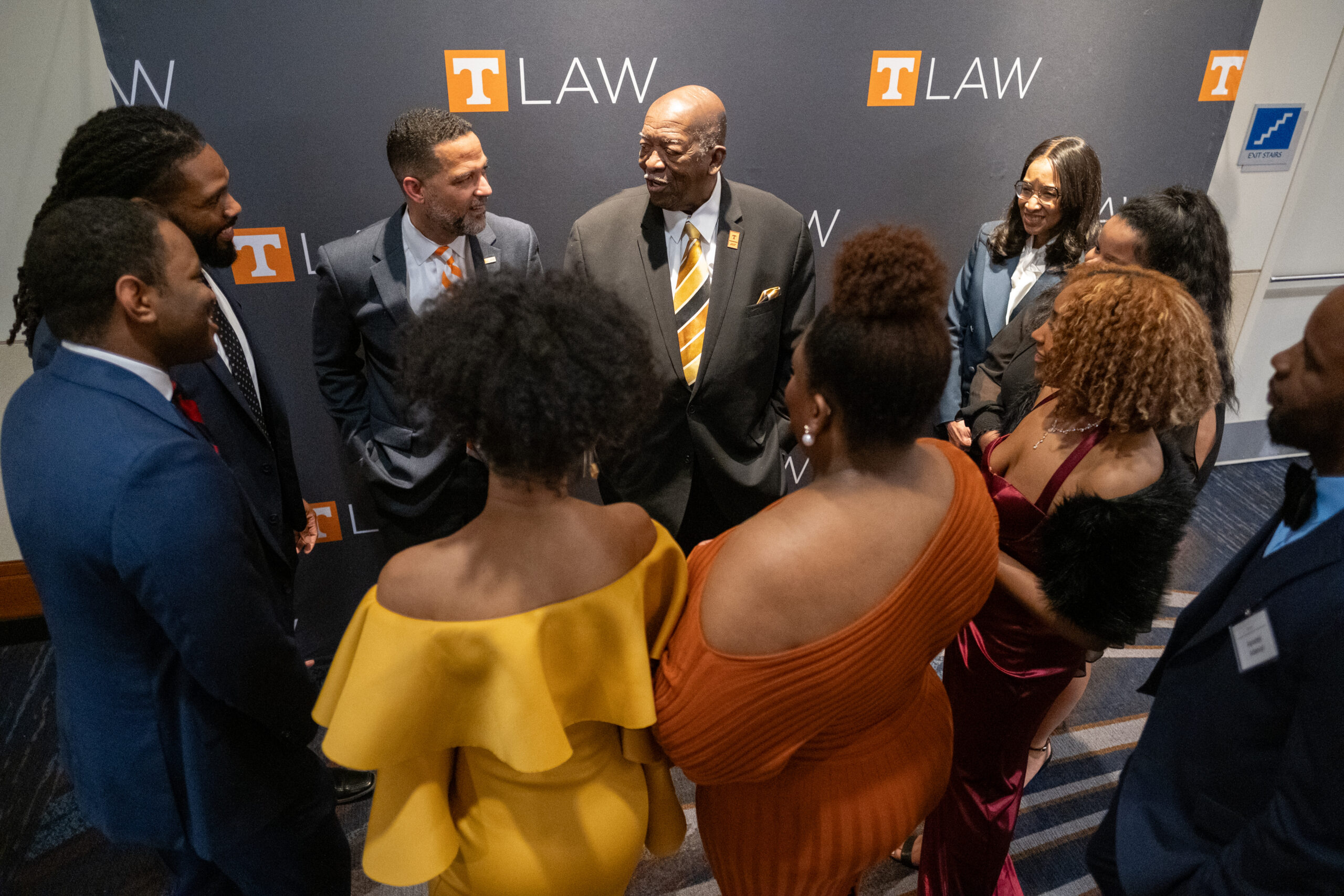
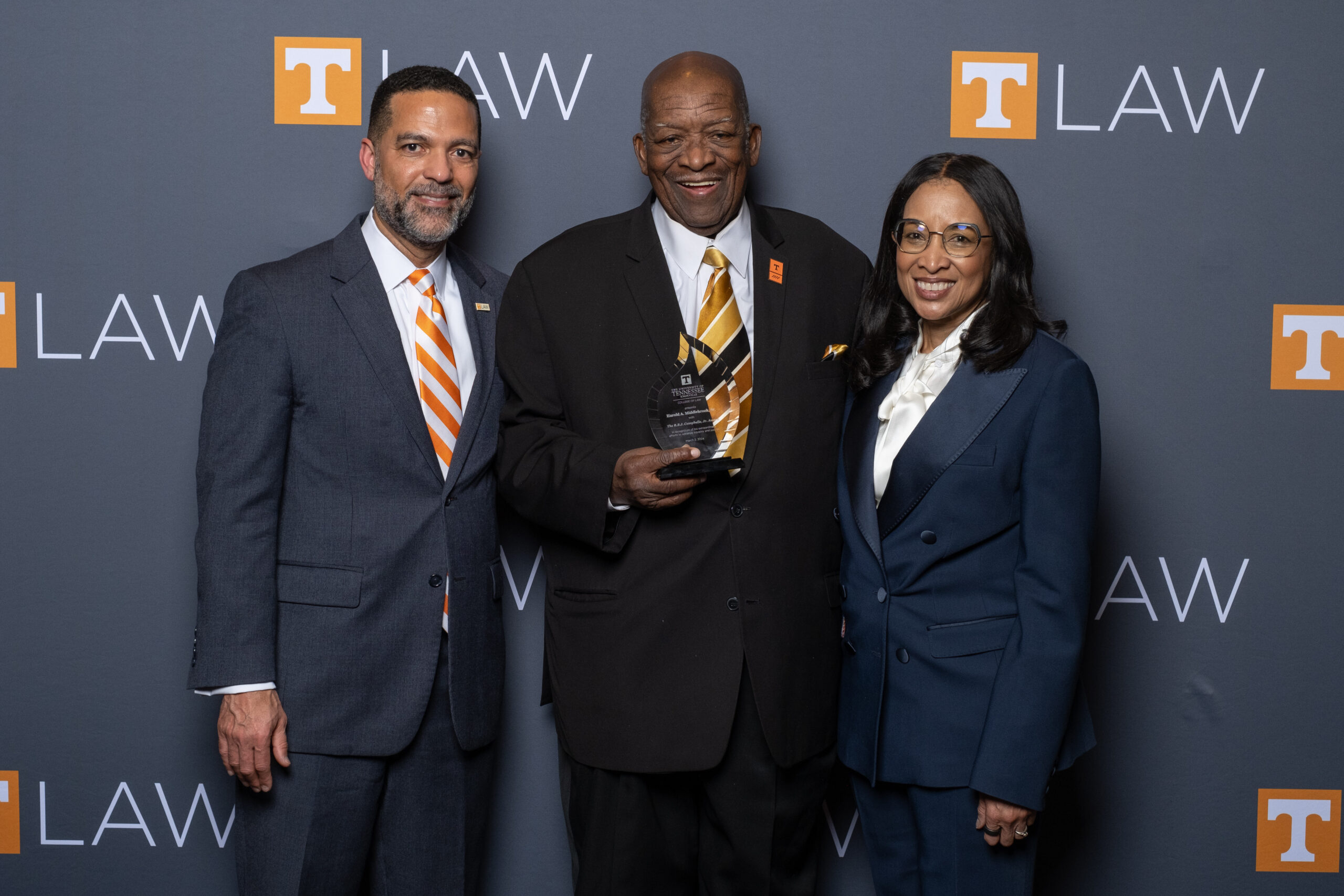
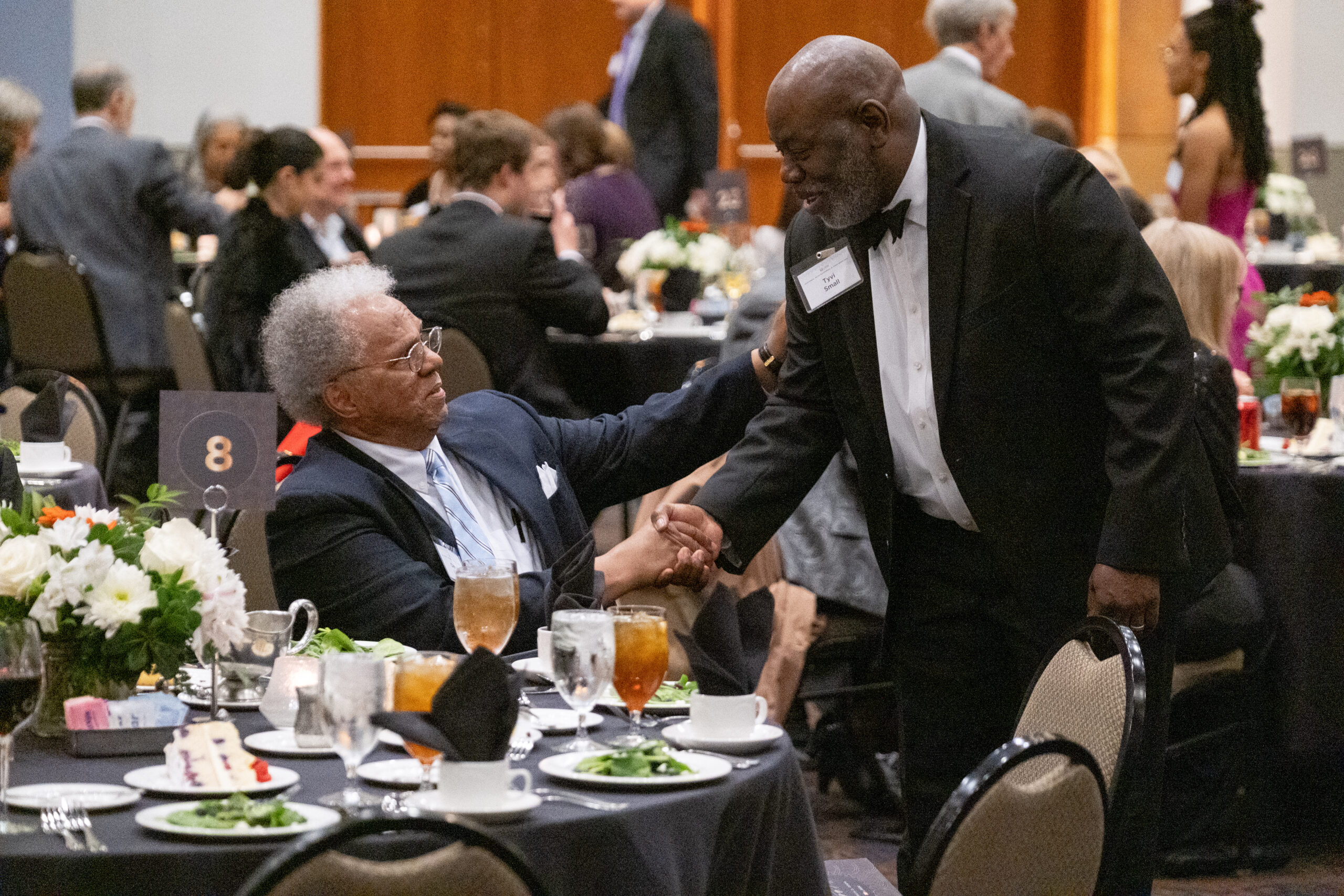
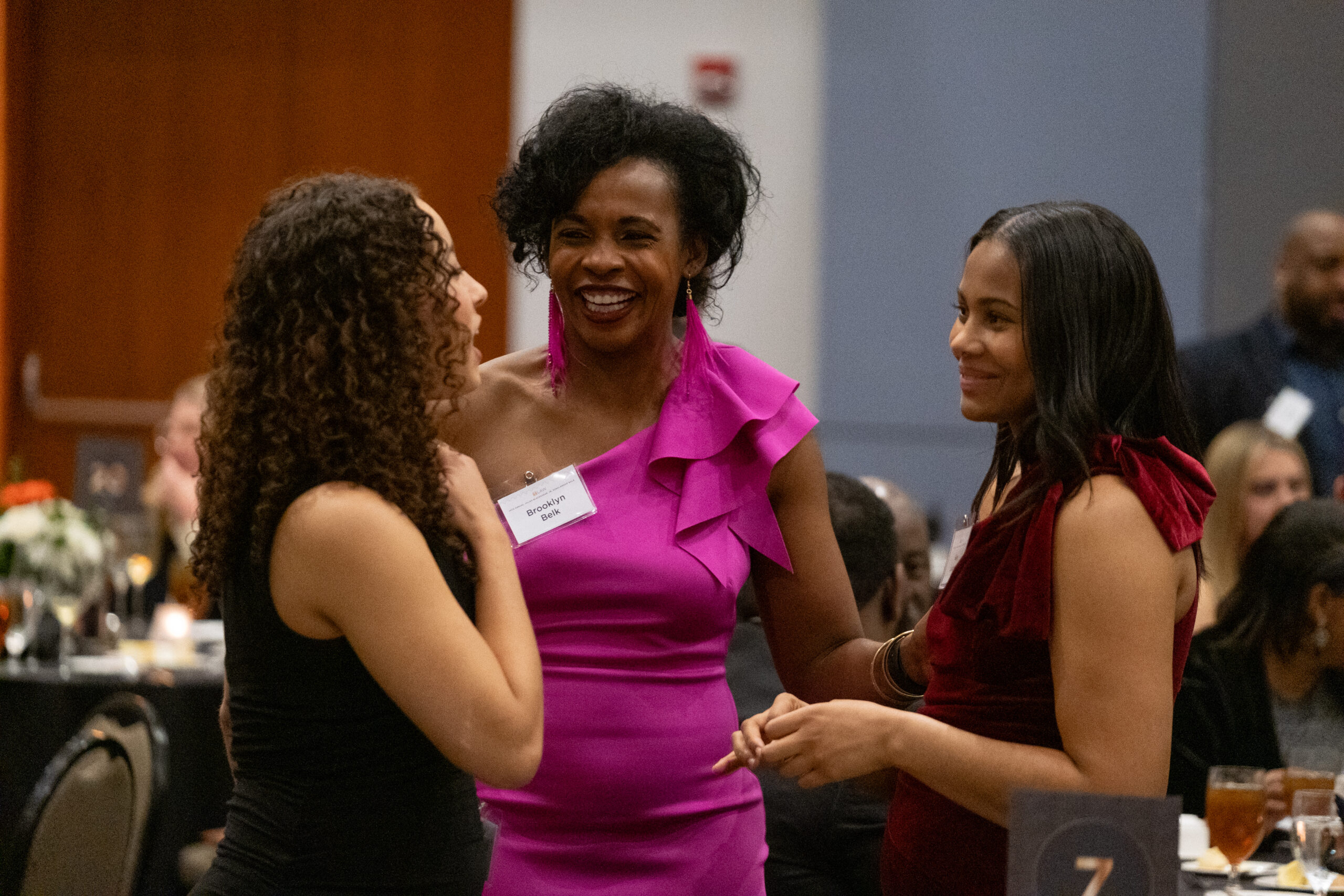
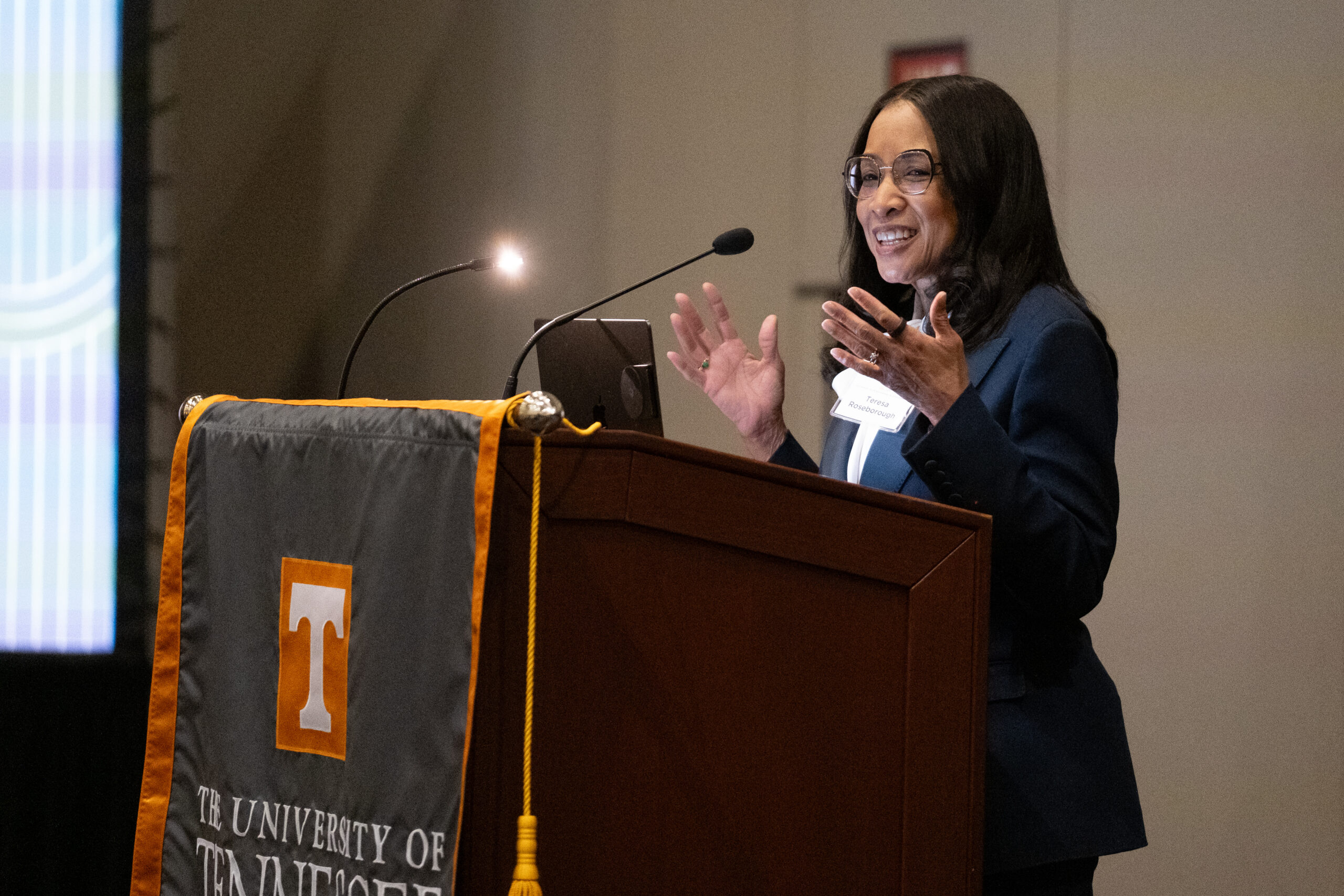
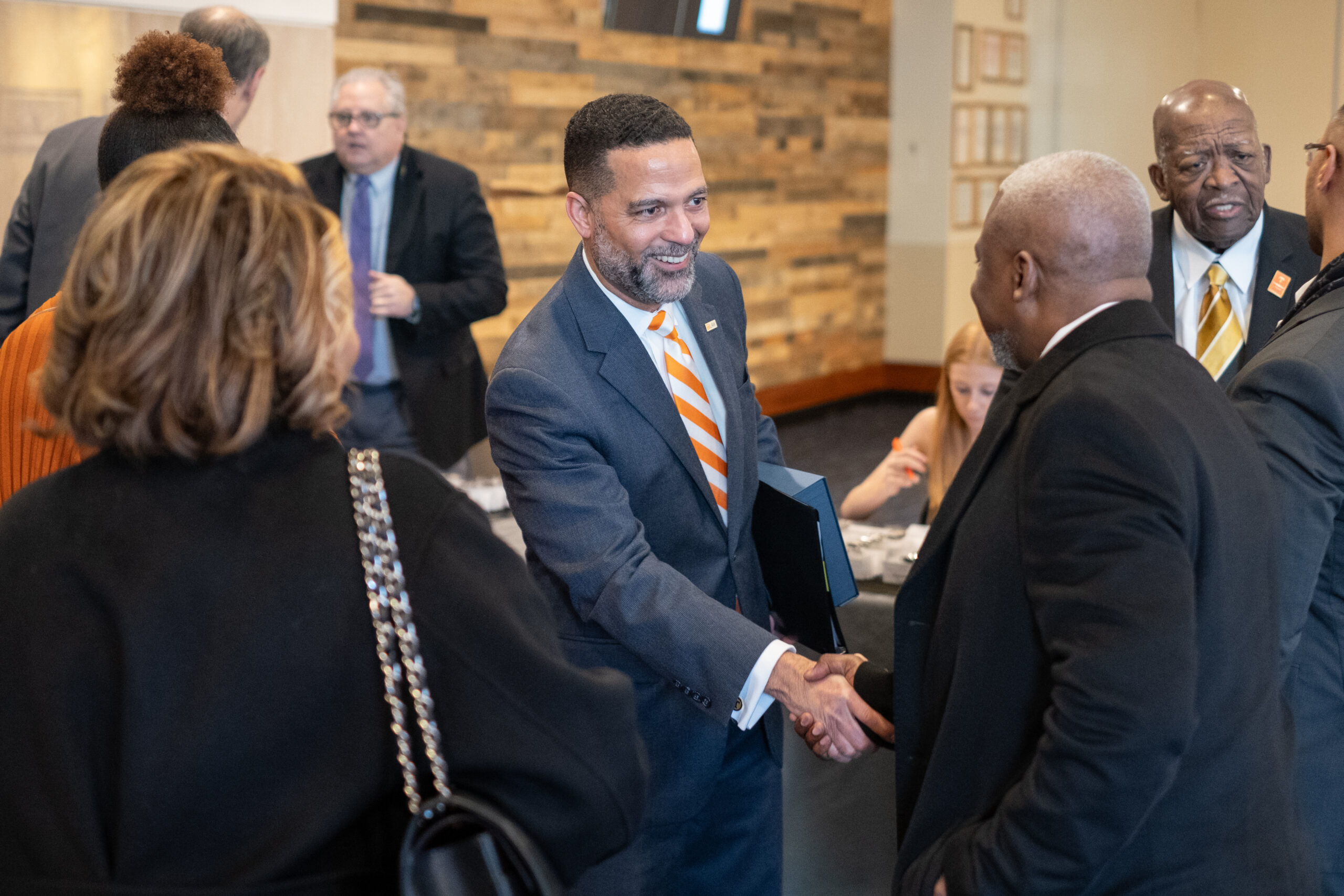
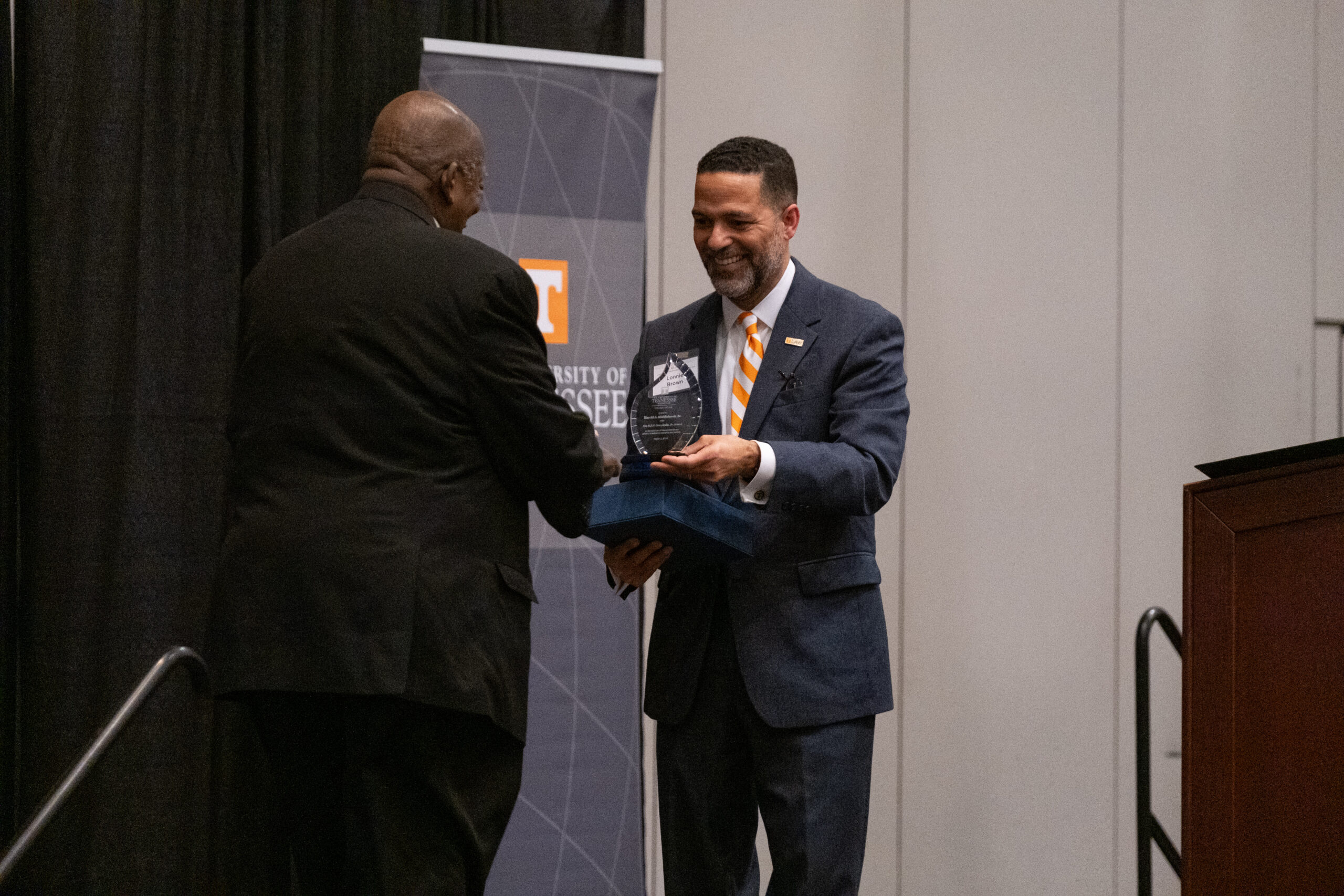
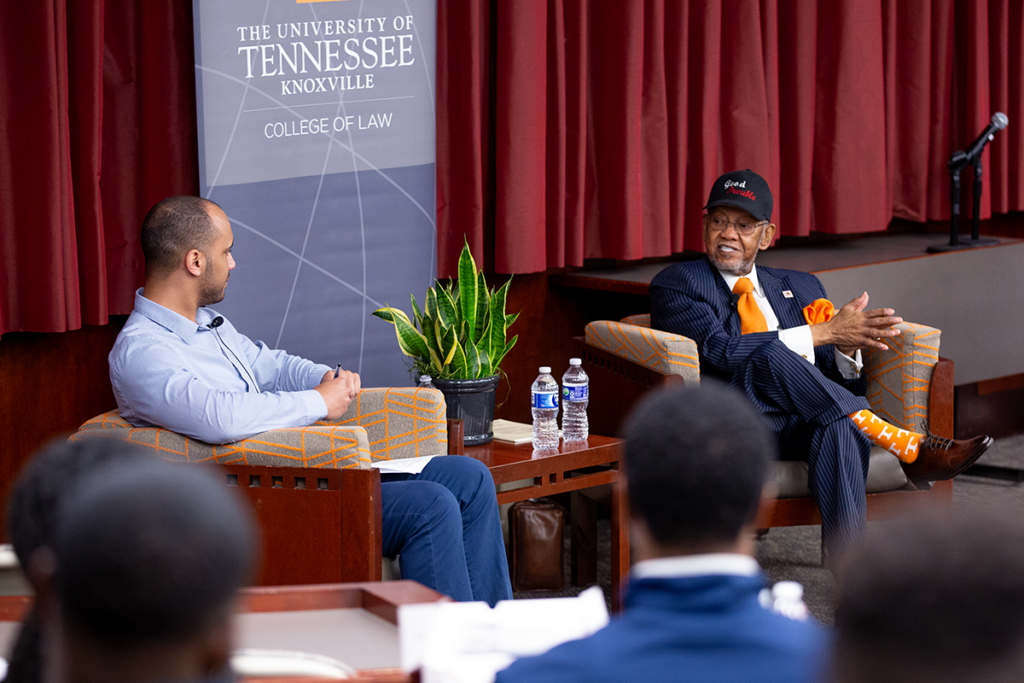
Hosted by the Black Law Students Association, Dr. Theotis Robinson visited Winston Law to share his trailblazing history as one of the first African American students admitted to UT.

Curriculum
Winston Law’s curricular offerings reflect the law school’s value of building a more just society by promoting a learning environment that is robust, engaging, and inclusive.
Throughout the curriculum, faculty prepare their students to be responsible legal professionals by fostering dialogue that bridge cultural differences, encouraging civil discourse, and providing instruction on bias, cultural competency, and racism.
Electives: Students have the choice of numerous courses–such as Appalachian Justice Research Lab, Civil Rights Actions, Disability Law, and Sex, Gender, & Justice–that are designed to expose them to a variety of perspectives and legal issues.
Learn more about Winston Law’s courses here.
Faculty Scholarship
The faculty of Winston Law are engaged in a wide variety of research that crosses cultures and appeals to those with multiple interests. Their work spans a wide range of fields including human rights, civil rights, international law and criminal law. Some examples include:
- Sherley Cruz, Becky Jacobs, et. al., ABA Standard 303(c) and Divisive Concepts Legislation and Policies: Challenges and Opportunities, 73 Wash. U. J.L. & Pol’y 247 (2024)
- Joan MacLeod Heminway, Corporate Management Should All Be Feminists, 40 Law & Ineq. 409 (2022).
- Michael J. Higdon, LGBTQ Youth and the Promise of the Kennedy Quartet, 43 Cardozo L. Rev. 2385 (2022).
- Michelle Kwon, Tapping into the Talent Pipeline While Repairing the Leaky Pipe, 55 Toledo L. Rev. 219 (2024).
- Alex Long, What the Lawyer Well-Being Movement Could Learn from the Americans with Disabilities Act, 63 William & Mary L. Rev. Online 63 (2022).
- Briana Rosenbaum, Deflect, Delay, Deny: A Case Study of Segregation by Law School Faculty, 90 Tenn. L. Rev. 1 (2022).
Access and Engagement Leadership
Associate Dean for Access and Community Engagement

Briana Rosenbaum currently serves as the Associate Dean for Access and Community Engagement. Dean Rosenbaum’s most recent scholarship focuses on the history of race in American legal education.
Read more about Associate Dean Rosenbaum
Deflect, Delay, Deny: A Case Study of Segregation by Law School Faculty
Community and Inclusion Committee
The Community and Inclusion Committee supports faculty, staff, and students in scholarship, teaching, and service projects related to access, belonging, community, and cultural humility at Winston Law. The Committee—made up of faculty, staff, and students—plans programming and recommends policies and strategies for increasing access to legal education, engaging with the community, and enhancing the welcoming and inclusive atmosphere of Winston Law.

